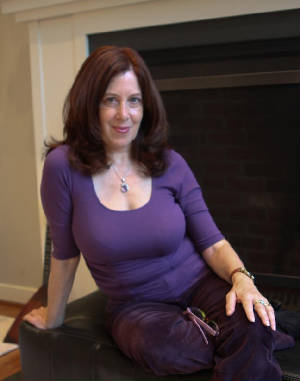
|
| That's me, Pattie Weiss Levy. |
A Modern-Day "Ima" on a Modern-Day Bimah
(With
new content posted every WEEK!)

|
|
Wednesday, October 26, 2011
A Word From the Weiss
Like most people, I like to think of myself as not just a good mother (although
that comes first) or a good person (although that doesn’t come easily) but also a good friend. By that, I mean the kind
of person who would do almost anything for my real friends, whether that means picking up their dry-cleaning, picking them
up after a colonoscopy, or being willing to pick myself up and fly halfway around the world to attend their child’s
destination wedding (not that anyone I know has yet asked me to do any of the above).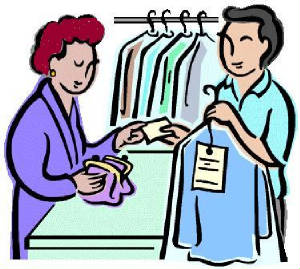
Life is short, though, as I often note here, and the time and energy we have to devote to anyone is limited.
On the other hand, life can also seem amazingly long when you consider how many people you meet along the way, from childhood
and college to work and adulthood, then eventually the nursing home (or, preferably, assisted living). So as I get older,
I find myself weighing more and more who my real friends are -- not just the many contacts to whom I forward amusing emails
or with whom I am linked up on LinkedIn, but the ones I genuinely care about and find the time to stay in touch with, or still
would do almost anything for, even if we rarely talk, text, or even Skype.
All of these complex issues came into focus
during the past week when my husband asked me to join him at the faraway funeral of one of his old college friends.
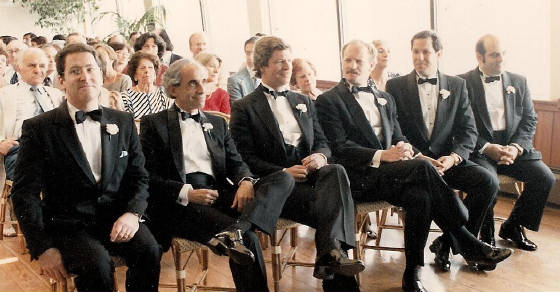 I must say that I am deeply impressed
by the astonishing number of friends my husband has managed to retain over the years as he has moved from place to place.
(And as a former television reporter, he has moved around quite a lot.) Even before the advent of Facebook (and long before
the dawn of the Internet), he managed to maintain active relationships with nearly everyone he knew, one of the main reasons
that we had 11 ushers at our wedding (the other being that he is not known for great decisiveness, and if you ask him if he’d
like chocolate or vanilla, he will invariably answer, “Yes!”). I must say that I am deeply impressed
by the astonishing number of friends my husband has managed to retain over the years as he has moved from place to place.
(And as a former television reporter, he has moved around quite a lot.) Even before the advent of Facebook (and long before
the dawn of the Internet), he managed to maintain active relationships with nearly everyone he knew, one of the main reasons
that we had 11 ushers at our wedding (the other being that he is not known for great decisiveness, and if you ask him if he’d
like chocolate or vanilla, he will invariably answer, “Yes!”).
So as distressed as I was to learn of the untimely passing of his old friend Chris a few weeks
ago, I also was deeply impressed when his instant reaction was that we had to attend the memorial service, which would be
held much later (since the body was to be cremated). Nonetheless, I was also a little hesitant, I must confess.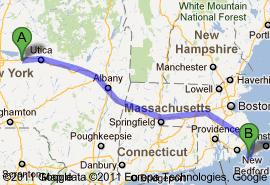
The problem was that the service was slated for this past Monday morning in Chris's distant hometown of Oneida,
in upstate New York, and we were already scheduled to spend that weekend visiting another of my husband's former
classmates who lives on Martha's Vineyard, which is very far from there and lies in the exact opposite direction. After driving
three or four hours to the ferry in Wood’s Hole, Mass., on Friday night, it would be a six-hour drive to Oneida on Sunday.
Then, following the service on Monday, we’d need to drive another four hours back home.
Forgive me, but that sounded like
an awful lot of running around for one weekend. Even to attend an old friend’s funeral.
I readily agreed to go, but urged my
husband to postpone our Martha’s Vineyard visit for another weekend. His initial response was to adamantly refuse,
in part because he was eager to see his friend there, who happens to have a serious illness. (Yes, his buddies are not in the
best of health, but that’s not so unusual when you consider that he’s 67.)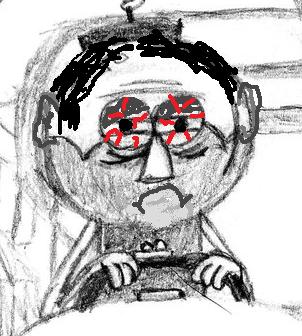
He insisted that he wanted to keep that visit as planned, then drive the 3 or so hours back from the ferry
to bring me home. Then he would get up at 4 in the morning and drive the four hours to Oneida for the 9 a.m. memorial
service himself.
Once again, I was impressed by his above-and-beyond dedication to his friends. At the same time, I was alarmed
for his wellbeing and retorted that he was nuts. That amount of driving on such little sleep hardly seemed safe. (Did I mention
that he’s 67?)
We finally hit upon a compromise, though. OK, so maybe it wasn’t much of a compromise. He agreed to do
things my way. We would delay Martha’s Vineyard, and I’d accompany him to Oneida instead. Given the lengthy drive,
we’d spend the whole weekend there, staying at the nice inn where the service was to be held. While there, we might even
visit the nearby college I had initially attended before transferring to my alma mater, Brandeis.
As saddened as we were by his friend’s
death, we began to look forward to seeing his daughter there, having met her many years ago when she was only about 13. My
husband had “friended” her on Facebook a few years back and now wrote telling her to expect us.
But as the weekend approached, a rather grim reality began to unsettle my mind. The fact was that we hadn’t
seen this daughter since 1983, and she was now about 40. We’d also only met the girl, Kristin, once or twice, and she
probably barely remembered us. Why, I wouldn’t have recognized her now if we passed her on the street.
But that wasn’t the crux
of the matter. The issue was that, although they’d been close friends when they’d been college classmates
back in the 1960’s, we hadn’t laid eyes on Chris himself since our wedding, over 27 years ago. Neither had we
spoken with him, nor had much contact of any kind. Although my husband had made periodic attempts to reach him, he had moved
around a lot, finally settling far away, in Western Michigan, and he had barely ever responded. Over the years, he’d
evidently had a second now-grown daughter named Emily with a woman named Virginia, and then lived for years with his current
partner, Diana. But we’d never met any of these people. Neither had Chris managed to meet either of our children,
although our son is now 25.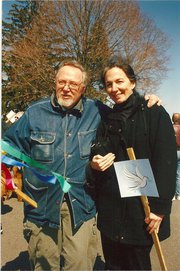
Yes, they had once been great friends, and my husband would miss him now. But was it fair to say they
were still real friends, the kind that merit putting yourself out?
Granted, in the case of most of my own old friends,
even the ones I haven’t seen in years, I can’t quite imagine not being there for them under such dire circumstances.
But in most of those cases I had such close relationships with these people that I knew their family members, and they knew
mine. My husband had never met Chris’s parents, who might or might not still be living, and hadn’t even learned
until recently that he had a brother. Who would we go to that service for, other than our own benefit or to avoid feeling
guilt?
To me, it was a bit of a moral dilemma. On the one hand, I believe that I should behave strictly according
to the dictates of my own inclinations and standards, rather than mirroring the behavior of other people, which may be lacking
in my estimation. On the other hand, I find myself repeatedly hurt and heartbroken when I put myself out one way or another
for a friend, and then they repeatedly fail to reciprocate in any reasonable way.
In Chris’s case, he had failed
repeatedly, and now clearly he would never make amends.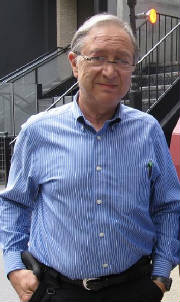
And so, a few days before we left, I finally dared to speak my mind to my husband.
“I said I would go with you,
and I’m happy to do it,” I assured him. “But do you really want to drive eight or nine hours round-trip
for the funeral of someone we haven’t seen in 27 years and who made absolutely no effort to stay in touch with you?”
Sure, it would be nice to reconnect with Kristin, I added, but the fact was that she lived in L.A. and we
resided on the opposite coast, in Connecticut. Given how many other people might attend the service, we likely would chat
with her there for only a few minutes and then probably never see her again. We might also get to meet his latest girlfriend,
Diana, but she lived in Western Michigan and was not about to become our new best friend.
“We should have gone to see
Chris while he was still alive," I said, "but, sad as it is to think about, our friendship with him is over. Wouldn’t
we be better off spending our time with real friends who are still alive?”
OK, to be perfectly fair, Chris had not just been one of my husband’s best friends during college.
There’d once been a time, however brief, that he’d been among our closest mutual friends.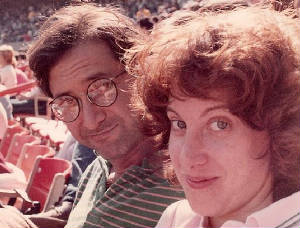
After my husband and I first met, on a blind date in 1982, our lives quickly became a tale of two cities.
He was a TV reporter in Hartford, I an assistant editor at New York magazine in Manhattan. Eight months later, I
landed my first reporting job at the newly formed USA Today, based in Washington, D.C. But we still continued to
see each other every weekend, commuting by plane. That’s when my husband rediscovered Chris.
They’d been great pals at Princeton, “both
about as atypical of that snobby place as anyone could be,” my husband recently recalled, “although there were
enough like us to betray the generalization.” A few years later, their friendship reignited when my husband, fresh out
of law school, went to work for the Federal Communications Commission in Washington, D.C. from 1970 to 1975. Chris was also
living there then and had launched a career in making documentary films, mostly about union organizing.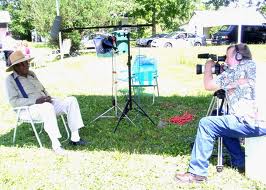
A
staunch activist for social justice, he would make over 100 films over the next 30 years and remain uncompromising in his
focus. But he was never above having a good time. “In those days, we did get together and enjoy carousing
and indulging, sometimes indulging a bit too much,” my husband wrote to Kristin shortly after her father died. “But
boy were our conversations and explorations high-spirited, interesting, provocative and fun.”
During those post-college years, they also once took
a brief vacation together to London, where “we hit the bars, the museums, and the sights, and even picked up some
English chicks (although we couldn't believe it could happen),” he wrote. His most poignant memory of his old friend,
however, he had to confess, had to do with an old pair of shoes and his incomparably smelly feet.
It
was partly Chris’s filmmaking success that motivated my husband to soon abandon the law, which proved too dry for his
irreverent nature, and to pursue a career in radio and TV instead. This led him to live in four different cities over the
next eight years. Then my own journalistic travels brought them back together. As my husband’s only friend living in
Washington, D.C. at the time, Chris became our most regular third wheel.
And
like any good wheel, he was always ready to roll with the prevailing mood, happy to go with the flow. My most poignant memory
of him is from that spring, when we invited him to dinner during Passover and my husband insisted that I serve only
steamed asparagus and matzah brie (fried matzah), although I insisted the latter was a breakfast dish and a strange choice
for Gentile company. Chris was a good sport, though, and downed it diplomatically, although he was clearly a bit mystified
and politely declined to accept seconds.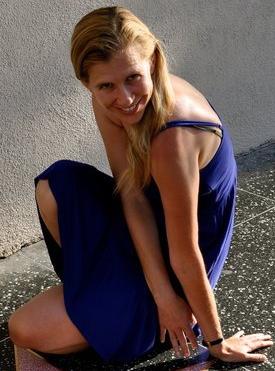
Having
married young, he was divorced by then, and I assume Kristin’s mother had custody, so I only recall seeing her once
or twice. On one of those occasions, she came out for the evening with just my husband and me and declared by the end of the
night that she wished we were her parents instead. That endeared her to me for life, although it’s easy to understand
why a teenage girl might gravitate toward people who relished shopping and going to the movies over an earnestly dedicated
union organizer who disdained fashion, popular culture and all other trappings of modern bourgeois life.
Chris, after all, had little regard for superficial
things like personal grooming. In a city dominated by the political scene, where most men looked as starched and clean-cut
as store window mannequins, he was oblivious enough to affect a personal appearance that was far closer to the personification
of an unmade bed than one with all the throw pillows carefully arranged. He had a bushy beard and straggly blonde hair worn
almost down to his shoulders, evinced no interest in toning up his prematurely bulging physique, and either didn’t own
an iron or had no knowledge of how to use one.
That
led to at least one potentially awkward moment. One weekend, one of my coworkers, the newspaper’s food writer, invited
us to a party at her townhouse. My husband, it turned out, had already made plans to get together with Chris, though, so at
his urging I asked her if we might bring him along. She looked at me incredulously.
“You can’t be serious,” she exclaimed
with her Southern accent and a wry smile, hastening to add, "Why, an extra gentleman is of course always welcome at any
party!"
I smiled back and thanked her, thinking frantically to myself, "Chris? A gentleman?" I wondered if
there were any way to get him to remotely look the part. The best I could hope for was that he would have showered recently
and wouldn’t remove his shoes, since that foot issue was probably far from a thing of the past. In the end, though,
we decided to bring him as is, because gentleman or not, Chris was always welcome.
Thinking back on it, I must admit, I wish we could
welcome him again now.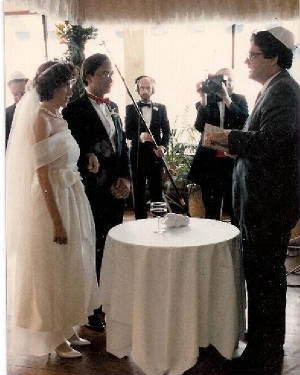
I
left that job and the nation’s capital after just over a year. Having a long-distance relationship was, alas, not for
me long-term. Chris came to New York for our wedding in July of 1984, where he served as one of those 11 groomsmen, but chose
to stay behind the camera rather than walking down the aisle. His wedding gift to us was to videotape the entire event. We
watched it on our 10th anniversary, but would never see him again.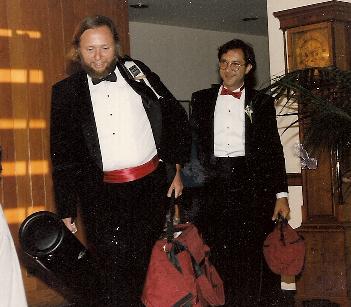
My
husband would try to track him down periodically, but Chris failed to return his calls. We heard once in the 90s that he was
living with Virginia and they'd had Emily. And evidently over the following years he would win three dozen awards for
his films. But I know that only from the short profile posted on his memorial page on Facebook. It was a single
paragraph he evidently had penned himself while still alive to summarize his life.
“I have been an organizer and a filmmaker all my adult life,” he wrote. “Since the Vietnam War era,
I have been extremely focused on, at first, reforming our system and later transforming our system.” As noble an effort
as that might be, it had come at great personal cost. Friends like us, evidently, had not been the only ones cast aside.
“I have done this work almost entirely with my own earnings, bankrupting myself a couple of times in the process,”
he continued. “I have accomplished some, but it has been at the expense of my two daughters' life with me. They have
paid the price for my activism and passion. For this I have deep regrets and humility. As I try to make amends, I am drawn
into the increasing struggle for human survival.”
I
learned from an obituary I found online that in recent times, his focus had shifted, and he had become an advocate for organic
local food systems. His 2007 film “What Will We Eat?” tells the story of a citizen’s movement to build a
healthy local food supply in Michigan. Also, he and Diana had been running Sweetwater Local Foods Market, “Michigan’s first farmers market to exclusively sell locally
grown fruits and vegetables raised in a manner that enhances biological diversity and builds soil health AND meats, eggs,
and cheese from animals raised humanely without antibiotics or hormones.”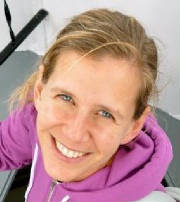
But
evidently that mission had taken precedence over his attempts to make amends. An entry on his Facebook page notes that Kristin
visited him in Michigan a few weeks before he unexpectedly died. But she told my husband that during the seven years
that Chris had been living with Diana, since 2004, she and Diana had rarely if ever met, which leads me to suspect
that she had also seen little of her dad.
I feel much more troubled about that than the extent to which we had drifted apart.
After all, we were the ones who moved away from Washington, D.C., and with most friendships, however true, the level of interaction
tends to be somewhat circumstantial. Face it, when you’re living in close proximity to someone, it's easy to see them
often. But when you’re far apart, unless both parties make a concerted effort, decades can go by.
So life went on and an incalculable chasm of time
and space grew between us.
The last time we saw Chris, Ronald Reagan was running for re-election and Barack Obama had just graduated
from Columbia University. A gallon of gas cost $1.10 and a movie ticket was only $2.50. Dallas was the top-rated
show on television, and Terms of Endearment had just swept the Academy Awards hosted by Johnny Carson.
In other words, it was a different era, one that seems like a distant memory now.
And so, I made my appeal to my
husband – to his judgment, his inner sensibility, or perhaps his pride. His initial instincts had indeed been noble.
But did he really want to make this rather arduous trek for a once-good friend who had long ago virtually disappeared?
“Actually, no,” he replied, making an about-face so abrupt that I nearly got whiplash. “Not when
you put it all in that light.”
He decided that he would prefer to spend the weekend with his friends
on the Vineyard, the ones who were still living and who we’d seen yearly over the same period. Unfortunately, it turned
out that after we had canceled, they had made alternate plans.
We also considered flying to Denver to see another old friend
whose wife is in grave health, but he said that her condition was too fragile for him to schedule any visits.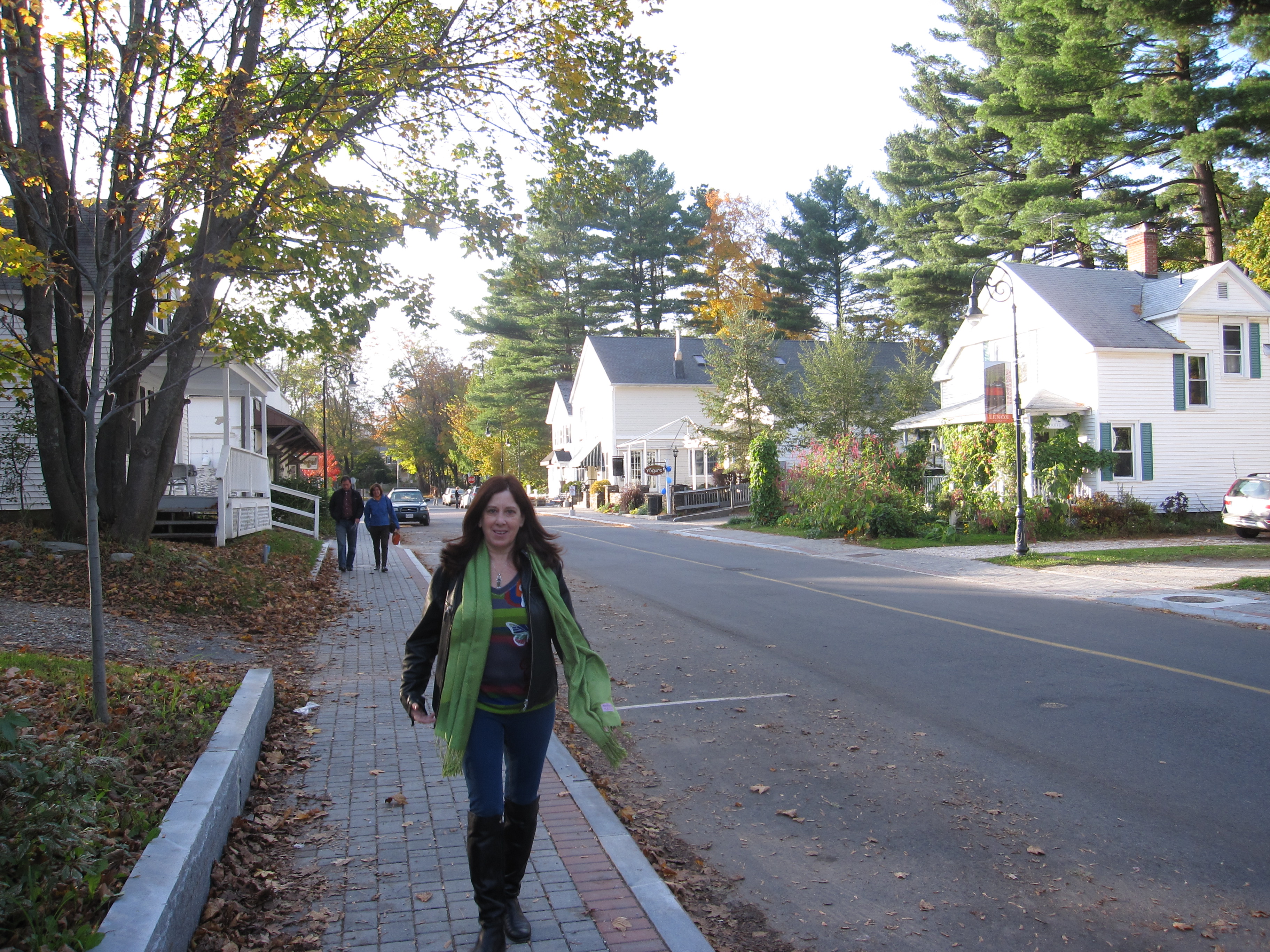
So we continued to deliberate over whether to perhaps go to Oneida, after all. Meanwhile, I proposed
a slightly revised plan. Last month, as I wrote in my blog, I went on a mother-daughter weekend trip to Lenox, Mass., where
I saw a play I knew my husband would love. Lenox was en route to upstate New York, and I knew a cheap place to stay. Why not
break up the weekend, spend the first night seeing the play and eating at our favorite restaurant there, then proceed to Oneida
on Sunday in time for the service?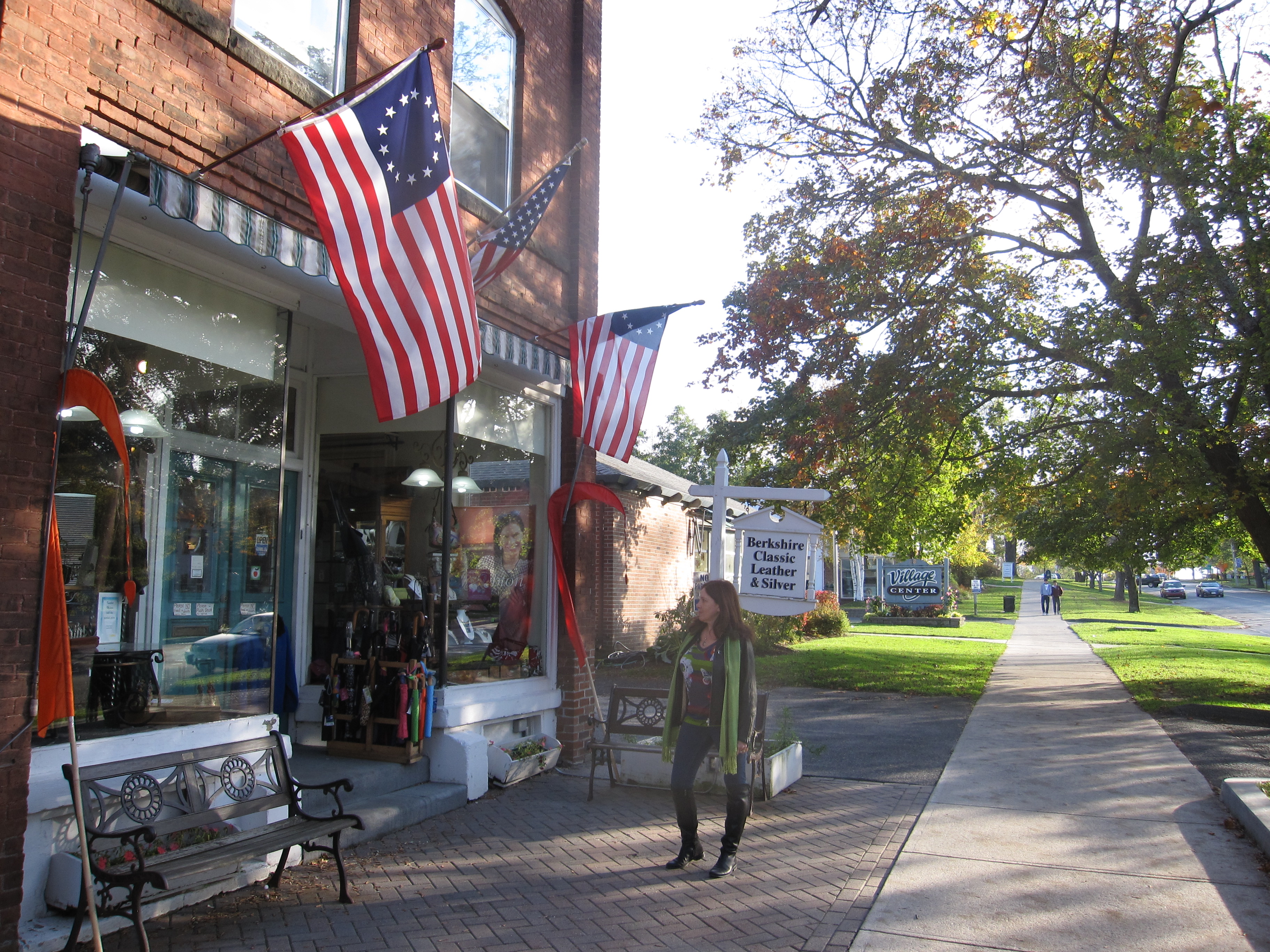
My husband loved the idea, with one major revision. He wanted to drive to Lenox and just stay there. So we did.
He wrote to Kristin apologizing
profusely and vowing to see her the next time we were in L.A. Then we drove to the Berkshires, where we had a wonderful time.
Well, not too wonderful. Since that weekend had never been about enjoying ourselves, we didn’t go all out. Instead of
staying somewhere lovely and venerable like The Birchwood Inn, Whistler’s Inn or The Kemble Inn, we made do with something
a little less posh and charming: a Day’s Inn.
Then we pretty much recreated the weekend I’d spent with the girls, eating at both that new favorite
eatery, Nudel (where the divine chicken liver and pumpkin seed pâté is nothing like your mother’s chopped
liver) and a convivial Italian pasta joint called Frankie’s, shopping at my favorite stores there, Shooz and Evviva,
and seeing that play at Shakespeare & Co., The War of the Worlds, based on the H.G. Wells science fiction novel
and the historic Orson Welles radio hoax, which he adored as much as I had expected and I even enjoyed just as much the second
time around.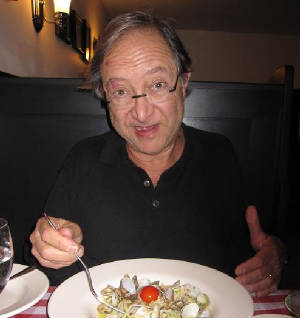
Yes, we still felt conflicted and a little guilty about skipping the memorial service. But in the end, we
did choose to spend the weekend with people who were still living and who still made the effort to remain part of our lives.
We spent it with each other.
I’d still like to think I’m a good friend – the kind of person who
would go to great lengths, maybe the ends of the earth, for a real friend. But as time goes by, I feel more and more that
those people have to show they’re willing to meet me somewhere close to halfway. That when I invest in relationships
that aren’t reasonably reciprocal, I end up feeling taken advantage of and disappointed – disappointed in both
them and myself.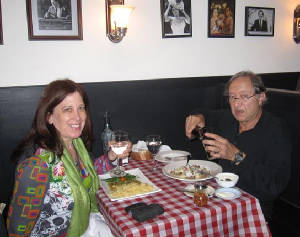
Maybe this is a cautionary tale. Friends can go unexpectedly, in an instant. If you love them, or once
did, see them now.
Also, we all need to make more of an effort to stay in
contact with people we really care about, not just emailing occasionally, but talking by actual telephone (land or cell) and
meeting at least as often as we change residence.
Or presidents.
And that goes for me, too.
I
don’t want to feel like a sucker going to my best friends’ 60th and 70th birthday parties or their children’s
destination weddings… or, God forbid, their funerals someday. And I don’t want any of them to feel that way when
they consider coming to mine.
Wednesday, October 19, 2011
A Word From the Weiss
Not to make you feel guilty – although what would a Jewish blog be without guilt? – but writing this entry is
among the last things I feel like doing this week, yet I have a strong sense of obligation to do it anyway, strictly for the
sake of you, my readers… even though, for the most part, I have almost no idea who you may be.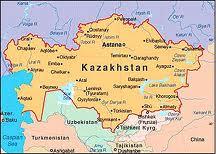
Yes, there is the numerical counting device on my site that tells me I have had close to 6,500 “hits”
on these pages since debuting on the Web a little over a year ago. I also can tell that most of my readers are in the U.S.,
although last month I also had two each in China, France, Estonia and Kazakhstan. (Borat, is that you?) Beyond that, there
is nothing that helps identify any of you by gender, religion, or geographical origin, let alone by name.
Sure, there was the unquestionably twisted individual who made his presence known last week by entering a
comment on my guestbook suggesting in rather graphic terms that I might enjoy some pro-creational activity with well-endowed
males of another race… and who, as soon as I managed to remove this helpful suggestion, hastened to add two even more
explicit comments offering to aid me in that pursuit.
There was also the time recently that my daughter asked me not to
mention the engagement of her longtime ex-boyfriend to another young woman on my blog, since his mother reads it regularly,
and I didn’t believe her and did it anyway… only to run into his mom at the store the very next day and learn
instantly that my daughter was right.
But otherwise I have almost no clue who is reading my blog, and I generally assume that almost no one I know
is, since almost no one I know ever mentions it to me anymore. The only way I ever find out to the contrary is when I write
about people whom I assumed were not reading it, and they proceed to tell me in no uncertain terms that they did, indeed,
read it and didn’t particularly appreciate what I had to say about them.
Of course, I never write anything here to deliberately offend anyone. Ever. I am, after all, not just a Jewish
mother, but by definition a nice one. However it may seem, I am simply trying to reflect on my life by writing about events
that befall me each week, especially ones that I believe are universal experiences and especially challenging ones at that
– like having a heated quarrel with one of your children, being asked to attend a fundraiser honoring a friend at an
organization you don’t support, or having an extended holiday visit with relatives who have very different temperaments
and habits from yours.
In the last of those three cases, in retrospect, as absurdly lengthy as my most recent entry ended up being,
I probably should have spent much more time dwelling on the extent to which those relatives went to great lengths to make
sure that my family and I felt welcome – serving lavish meals, paying for our ferry tickets, and most of all being warm,
affectionate, and deeply appreciative of everything that we brought, and then taking the time to phone afterwards to say how
much they’d enjoyed being together.
No, in retrospect, what I should have done is written about something
else entirely, or just printed my reaction to our rabbi’s sermon (very nice), or offered holiday recipes.
But I’m a complete and utter asshole – excuse my language, but that seems apt – and I didn’t
do that, largely because that wasn’t my point at all. My point was that no matter how much relatives may want you to
feel welcome, and you may want to be with them, family get-togethers can still be excruciatingly difficult because you are
often fundamentally different people, and no matter how much you may try to get along, you know that just being yourself is
guaranteed to rub them the wrong way. But there’s no point in apologizing here, or going on about it now, because those
people evidently were reading this (although they hadn't mentioned it in a long time), and they evidently
no longer will be.
And although it may be totally obtuse of me not to have realized how offensive what I wrote was (because
I would never write something offensive about someone just because I thought they would never read it), the strange thing
is that it’s often hard to predict what will insult people and what won’t. You may find that hard to believe --
and as someone who is hypersensitive to criticism myself, I feel a bit ridiculous saying it. But it’s true. It’s
also easy to offend people by just being honest. Yet the thing that ends up bothering them is often not something you were
aware of or even thinking about at all.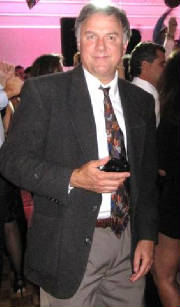
For example, a few weeks ago I wrote about attending a bar mitzvah held by some of my husband's relatives
who live in New Jersey. I wrote about sitting beside the bar mitzvah boy’s uncle, Jamie, a relative whom I like enormously,
largely because he’s so open and candid about personal details of his life. Still, I worried that he might be offended
by my mentioning here that his eldest son suffers from Angelman Syndrome, a rare affliction, and how difficult this often
proved for his family.
On the contrary, he didn’t mind at all. “I am pretty hard to offend, since
I just look for the humor in pretty much everything,” he later wrote. Still, one unfortunate word that I used without
thinking clearly stuck in his craw. “I don’t think Colin is a ‘victim,’ so much as a genetic loser
in the game of evolution,” he wrote. And I realized that this loaded term was, indeed, a thoughtless and very offensive
one.
More than once, I also have documented an argument I had with someone and stated how relieved I was to have
settled it, only to have that person call up outraged to have read my account, and suddenly we were battling all over again.
(I thought they’d agree that it was great we’d made up. But I’m not going to get any more specific than
that, at the risk of offending any of them again and opening up those wounds yet a third time.)
Then there was last month’s
entry about a mother-daughter weekend I spent with my daughter Allegra, her good friend Samara, and Samara’s mother
Laurel. I worried that Laurel, who is one of my closest friends, might take offense at a relatively personal reference I made
(which I won’t repeat here at the risk of offending her again).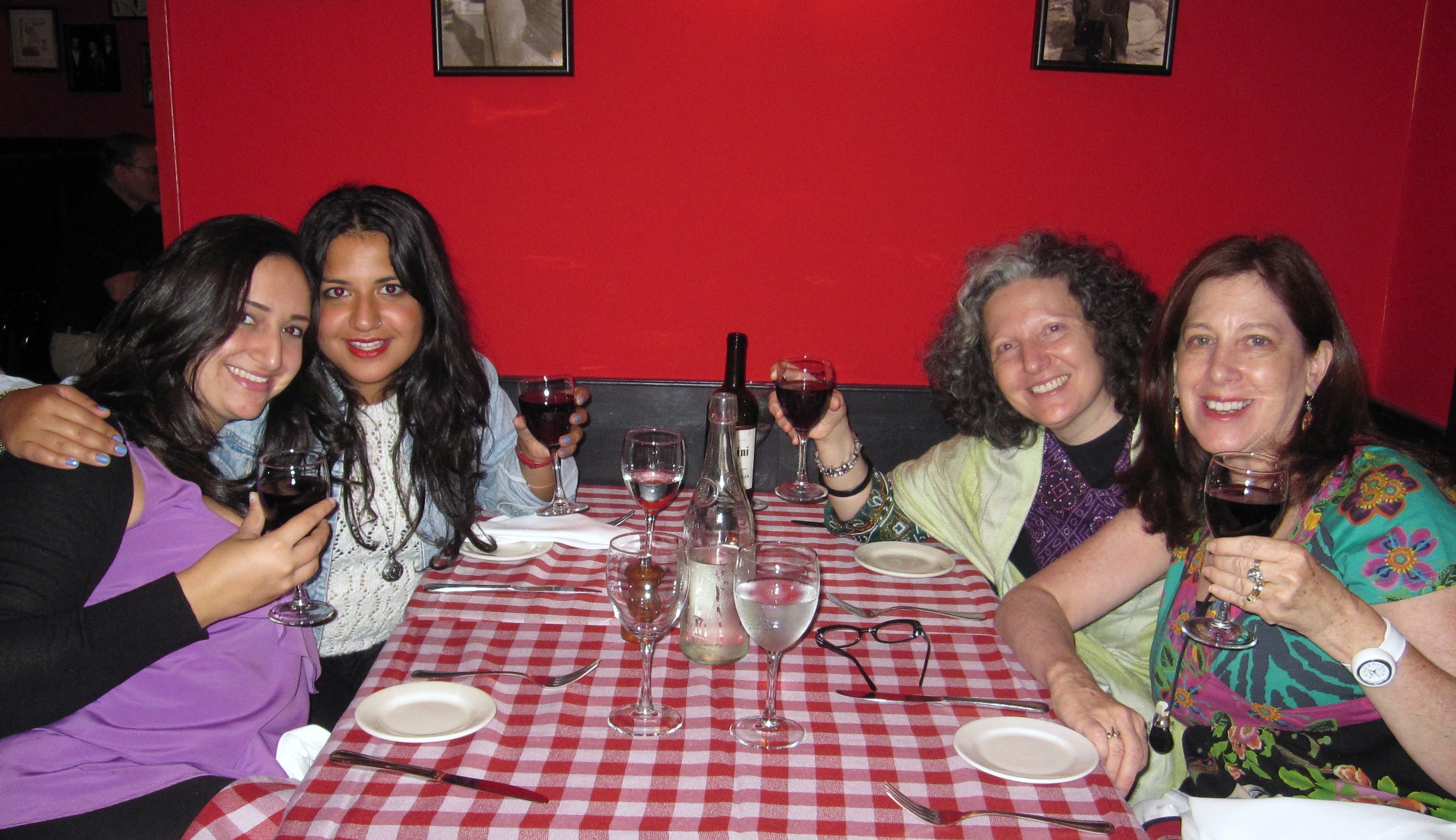
On the contrary, she never even mentioned it. What troubled her, she said – although she was fairly
gentle about it – was that I’d posted a wide range of photographs taken that weekend. She had wanted to relax
on the trip and not wear makeup, she said, and she didn’t exactly welcome having pictures of her unvarnished self broadcast
online.
I thought she looked wonderful in those photos (and would like to think that women all look wonderful without
makeup, especially when they are having a wonderful time). But I deeply regret making her uncomfortable and apologized profusely
for having done so (and I am only putting one of those photos on here again, at the risk of offending her once more, because
I think she is wearing makeup in it, and no matter what she says I still think that she looks great).
Yet I am not going to write about
having visited her in the hospital or at home in the past few days after her husband underwent surgery, as much as this was
a major event in my week, because she was understandably not wearing any makeup at these times. Also because those visits
were not things I did for the purposes of writing about them. They were something I did strictly because we are friends, and
that’s what friends do.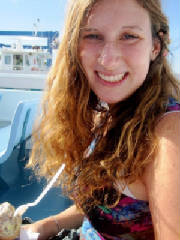
Nor am I going to write about the great evening I spent visiting my niece at college last Friday night. All
I will say is that I was there from 5 to 11 p.m. and it occurred to me afterwards that since she was born 21 years ago I had
never spent a single hour alone with her, let alone six of them. Too often that happens with relatives because there are always
other family members around. There’s no good substitute for alone time, though. This was a great bonding experience,
and if you haven’t ever done it with your own nieces and nephews, or perhaps even your own children lately, I heartily
recommend it.
I also feel a little bad because I put a photo of my niece on here last week, even though I wasn’t
sure she’d like that. She had seemed reluctant every time I tried to snap her the previous weekend, then relented on
condition that the pictures not appear on my blog. I wanted to show her even so because I was writing about her, and because
she’s a beautiful girl, so I simply chose to use the photo she’d selected as her profile picture on Facebook,
thinking that this was one she liked and was already showing to the world.
I still worry that she might have
since seen the photo on that blog, or will see this one, and feel that it was an invasion of her privacy. I certainly
hope not.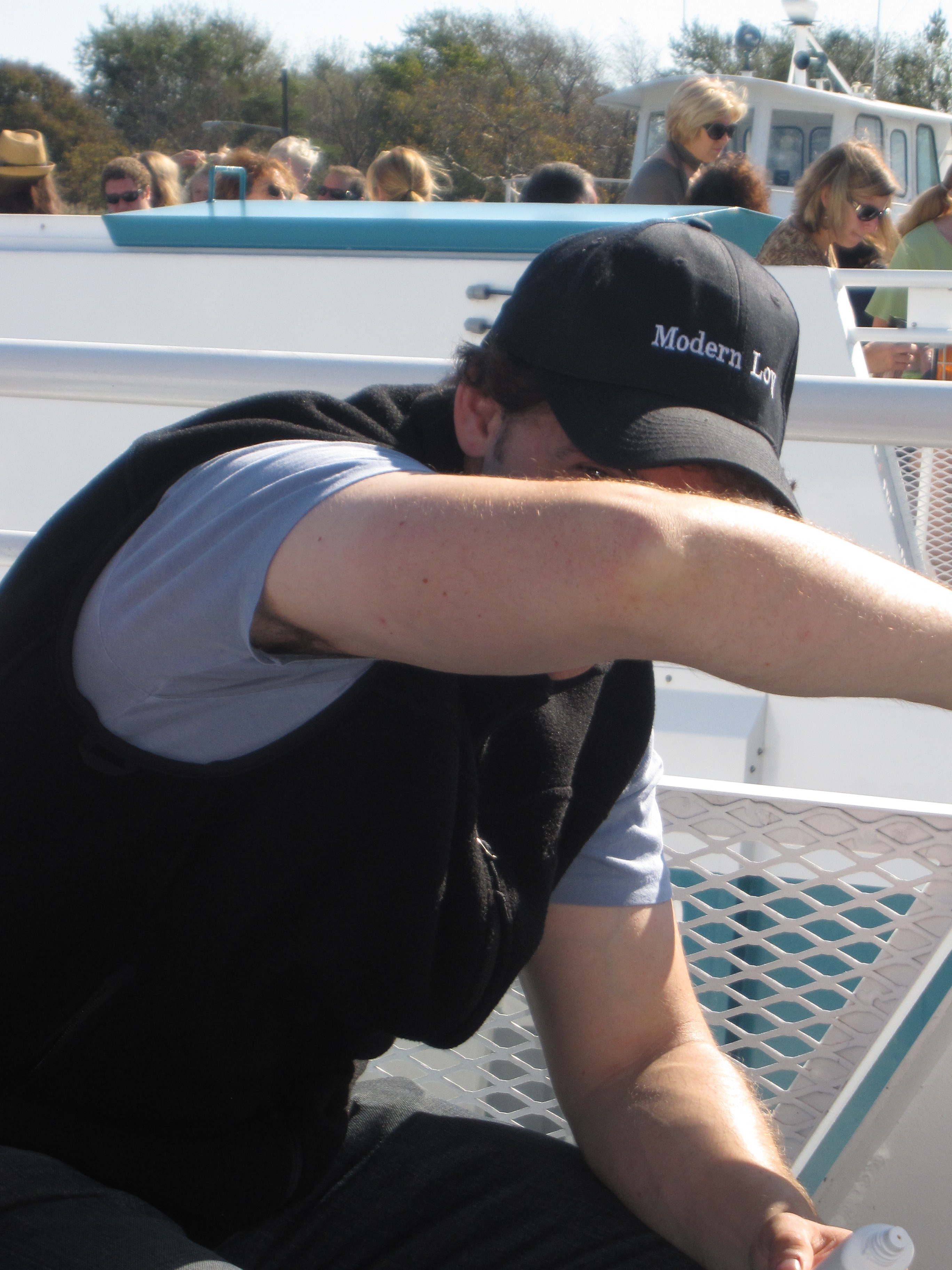
As for all this taking of photos, I must admit that I’m becoming an incredible nuisance to my own family
because I whip out the camera almost constantly now, in an effort to document almost everything we do on film, just in case
I later choose to write about it.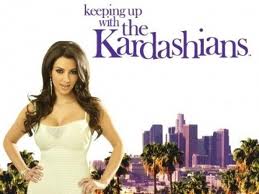
No, I am not trying to imitate the Kardashians, whose reality show Keeping Up With the Kardashians
I have never seen and with whom I have no desire to keep up. Rather, I do it for the purposes of having something with which
to illustrate what I later will write. Although, given my camera skills, many of my pictures are worth only about, say, 10
or 15 words give or take, I do think you, my readers (whomever you may be) want to see what I’m talking about.
In part, my newfound shutterbug habit is also a subtle way of reminding everyone periodically that I’m not
just some run-of-the-mill (or run-of-the-mall) nice Jewish mom. I’m also a weekly blogger, and anything they do or say
within earshot of me may later turn up online and incriminate them (or at the very least prove mildly embarrassing).
I both fear and occasionally fantasize
that people eventually will start behaving so impeccably around me that I’ll have nothing to report about them other
than that they’re nice. Then again, no one I know really wants me documenting their every move in print. This is not
a reality show, it’s real life -- theirs.
In terms of the embarrassment factor, I probably err wildly on the side of candor. This is in part because
I don’t think it’s worth writing about almost anything if you’re not going to be honest, and also because
I don’t feel great embarrassment about most of the things I reveal, since I sense that you and I are total strangers
who will never meet. (Or are you people whom I know well, but who will never mention reading this to me?)
It’s also because as a former
newspaper reporter, I long ago came to the firm conclusion that we all are subject to the most embarrassing experiences in
life, from bouts of gastric distress to saying unspeakably horrid things to the people we love most. And barring that you
commit any grave crimes or unethical acts, like murder or adultery, it would be hard to truly shock almost anyone by divulging
most human behavior.
There is also some real value, I believe, in talking about troubling things that we all undergo, and letting
other people out there who probably also have experienced those things know they are not abnormal, are not alone, and have
nothing to be ashamed of.
But I also realize that I have no real right to write about the people around me --
whether they be my family members or people I briefly encounter at an event -- let alone to publish photographs of them. (Newspapers
and other media have regulations about this and tend to require written releases from people before exhibiting them in print.
To my knowledge, blogs are unregulated and, as unethical as it may seem, a free-for-all.)
If I were truly nice, I would never
use photos of anyone without prior approval, even so. Also, maybe, if I were really that nice I would play it safe from now
on and not say anything here about anyone else I know beyond the fact that they are very nice. (Although then, of course,
I would know exactly who my readers were: no one.)
I asked my son, Aidan, today if he considered the people I know fair game for my blog.
“No, I don’t,”
he replied flatly. He didn’t think I should write about any of them (although he’s given me almost blanket permission
to write about him however I see fit). “It’s inappropriate,” he said, particularly if I have anything remotely
unpleasant to say.
Then he went on to elaborate. “It’s my stance as a journalist that I would never write anything
negative about anyone unless I was on staff at a publication, and it was my job to do it.” If he were a critic of some
kind, for example, then he might be obliged to be harsh sometimes. And even then, he’d want to explain to the person
he was writing about that it was his job and not everything he had to say would necessarily be positive.
“I’m also from the
school of thought that ‘if you don’t have anything nice to say, don’t say anything at all,’ ”
he observed.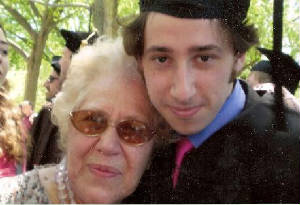
That was something that my late mother, who was very nice, often used to say to me, so I guess I’m
from that school, too.
Despite having occasional moments of angst or crabbiness,
I think Aidan sincerely embraces
that concept, which is one reason that, although he writes weekly about jazz, he has little desire to actually become a music
critic.
I also think he’s feeling that way now in part because someone he knows said something very unpleasant
to him the other night -- that this fellow and a mutual acquaintance often talk about Aidan, which sounded kind of ominous,
not nice. We then talked about how awful it is for someone to say that, and how paranoid it can make you feel, and that the
only thing along those lines that it’s socially acceptable to say to someone is, “We were just talking about you,”
since the implication is that they were saying something reasonably nice.
And I hope my repeating that here
wasn’t a gross invasion of my son’s privacy.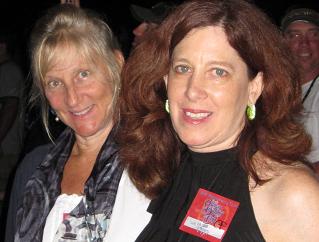
So, let’s see. I’ve been writing for most of the day now, other than for a few brief breaks I
took to chat with my son, berate my husband, check my email, and chat with my good friend Stacey about our friend Catherine’s
upcoming sixtieth birthday party. (Do you mind that I mentioned you, Stacey? How intrusive is it that I included the
photo of us at right? And Catherine, you don’t look a day over 45. Do you mind that I mentioned your age?)
I’m not mocking anyone. I
simply have gotten to the point where I’m afraid to write about anyone for fear of antagonizing them. The problem is
that this is a personal blog – I don’t address world issues, like the swap of long-imprisoned Israeli soldier
Gilad Shalit for hundreds of Palestinian prisoners; I write about my own life. And there is nothing interesting to say if
I don’t weave in accounts of my interactions with others, although those people may not welcome having anything at all
about their lives revealed online.
I don’t want to risk alienating everyone I know in the interests of having fodder for my weekly ramblings.
Nor am I convinced it’s OK to write about people I don’t know well (other than celebrities like Hugh Jackman,
whom I amazingly haven’t mentioned yet) just because I assume they’ll never know because they’ll probably
never read it.
Take, for example, the group of women I met last weekend at a private elementary school reunion of my husband’s
that he dragged, er, invited me to. Are they fair game?
For some reason, he seemed eager
to have me accompany him to this event, although I still contend that reunions are meant strictly for the alumni of the school
in question and are likely to be torture for all significant others, especially if they are less than gregarious, like me.
I also must admit that, as a product and huge proponent of public schools, I had personal reservations about mingling with
former students from what I considered to be a rather elitist institution, even 55 years after they’d graduated.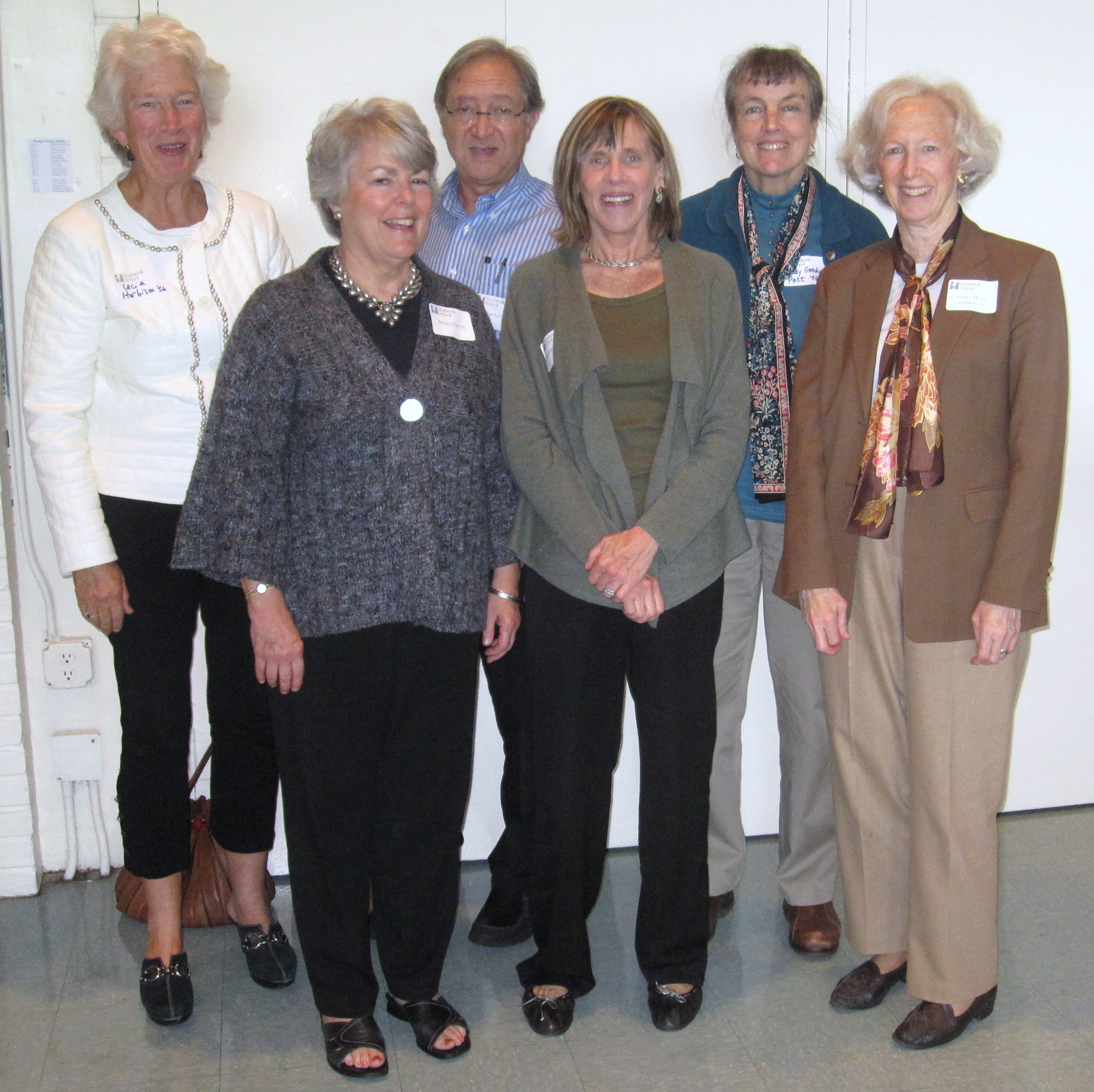
But along with being reluctant to go, I was also reluctant to disappoint my husband. Besides, the reunion
was right in our town and he assured me it would only be for lunch.
Only five people from his class, all women,
showed up for what was not exactly a major milestone, their 55th anniversary of finishing sixth grade. As I expected, all
five appeared to be well-heeled WASPs. All were also 11 years my senior, like my husband. And I felt a little uncomfortable
about that because I’m convinced that most women harbor some resentment toward much younger women who marry their contemporaries. (Not that the decade-plus between us exactly makes me the Jewish Anna Nicole Smith.) (Not that the decade-plus between us exactly makes me the Jewish Anna Nicole Smith.)
On some level, it’s a little
like the question a non-Jewish friend asked me over the weekend: Do Jewish women resent Gentile women who marry Jewish men,
much in the same way that black women may be inclined to resent white women who marry black men? Yes, I said, because it’s
hard not to take it as something of a personal affront. (“Why does he prefer one of them? And isn’t
that, on some level, a rejection of me?”)
One of the women at the reunion made an actual overt (albeit subtle)
comment about my age. Yet all were accomplished in some way and exceedingly cordial to me, and I began to feel enormous guilt
for having been so oppositional… until the slide show after lunch began, and I had to sit for nearly two hours viewing
hundreds of decades-old childhood photos of school plays and class activities shot before I was born, featuring people I didn’t
know. (My husband appeared in only three toward the very end, and by that point I was wavering between boiling over and falling
asleep sitting up.)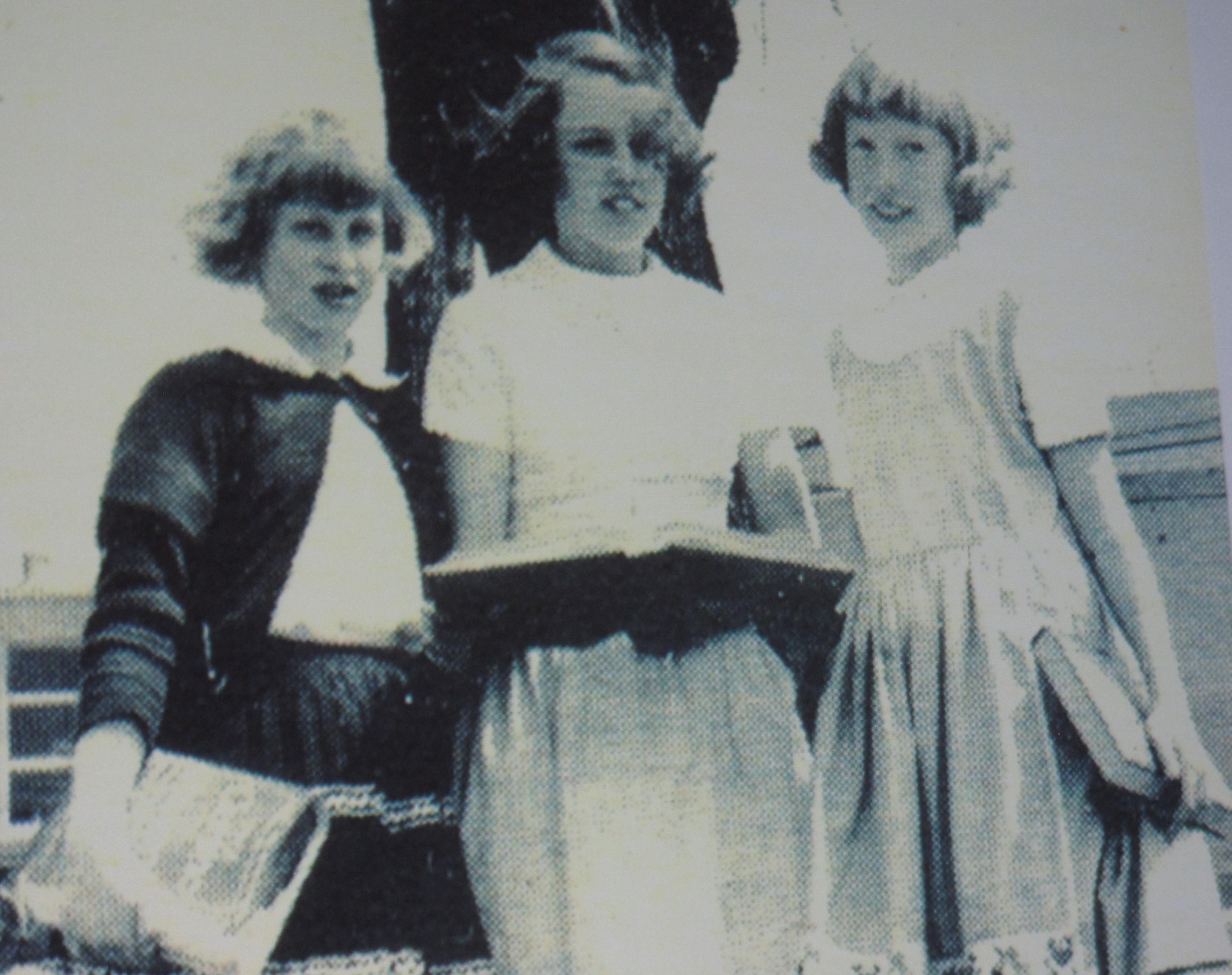
By the time it was over it was late afternoon, the sun was all but gone, and I was livid at my husband for
having pressured me into coming, even though I knew it wasn’t his fault that it had lasted so long, and I sensed
that I’d managed to put a major damper on his enjoyment, since he’d continually turned around throughout the presentation
to see if I was exasperated, which I clearly was.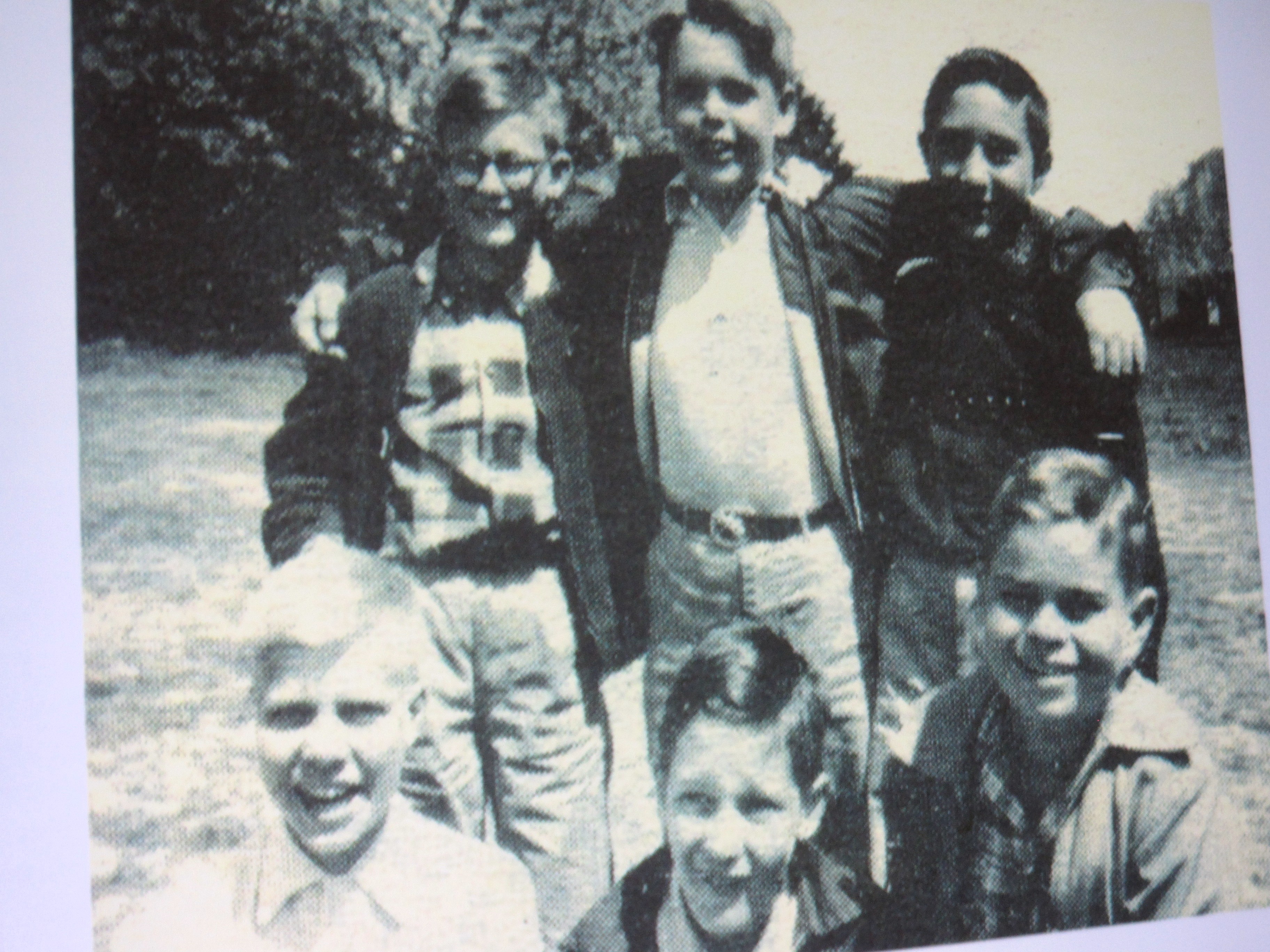
So, never mind whether it’s fair for me to make my husband out to be a dolt (considering that his only
real crimes here were being a little obtuse and wanting my company). Is it fair game for me to post pictures of those women,
both at age 11 and age 67, since they are not likely to ever view my blog, which has little to offer them? (Then again, that
nut job who sullied my guestbook last week was neither female nor Jewish, I can only hope, yet that did nothing to discourage
him from logging on.)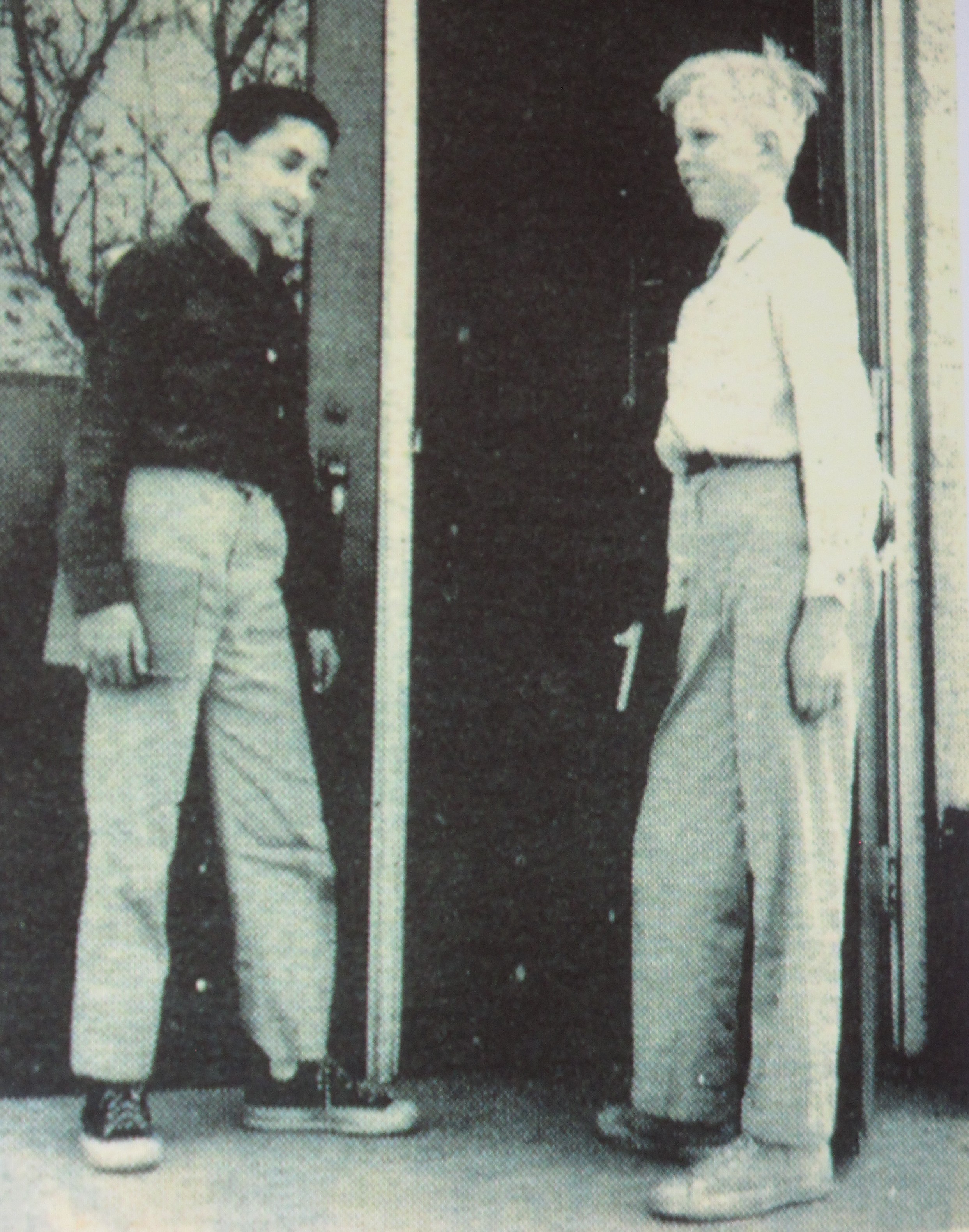
Probably not. Then again, my husband persuaded me to join him there mostly by arguing that he needed me to
take photographs. (That’s the reason I don’t appear in any of them, along with the fact that I didn’t belong
in any of them or at the event at all!) And they are the only photos I shot all week. So, like it or not, ladies, there you
are!
I’m hoping that I’ve blabbered on enough by now to stop soon. I’m also hoping that I’ve
managed to write this entire blog without offending anyone. And I am not being sarcastic, as much as anyone might think I
am. I don’t want to insult anyone. That’s why I was reluctant to write this week, and why I’m wondering
if I should continue writing this blog at all.
Then again, I just stopped briefly to watchThe NBC Nightly News
With Brian Williams. And the final story on it reminded me why I think it’s worthwhile to do this sort of thing,
and to candidly divulge some of the not-so-nice experiences that befall me, even at the risk of compromising the feelings
of others and my relationships with them.
The story was about a 10-year-old girl named Brooke in Minnesota who’d been feeling ashamed about a
terrible secret she harbored. Then one day her teacher read a book to her class about a family living in their car, and suddenly
she got up the courage to tell the teacher and her friends that her own family had been living in a tent in a field.
“I thought I was the only
one who had to go through this, but then I learned there’s other people, too,” she explained to the reporter.
And when her friends accepted her despite it all, this girl learned another lesson. “It doesn’t matter where
you live or what you do or what you wear or what you look like. It’s always [what’s] on the inside that matters."
I don’t live in a car. I don’t live in a tent. But I know what it is to feel shame. Ashamed of myself, that
is.
Maybe if I keep writing this, I’ll learn how to put things that simply and eloquently.
Or maybe, at the very least, I’ll
eventually learn how to write about my life and my complex relationships with others without offending anyone. Now wouldn’t
that be nice?
Wednesday, October 12, 2011
A Word From the Weiss
The
10 days between the Jewish New Year and the Day of Atonement are traditionally a period set aside for Jews to suck it up,
swallow their pride and settle conflicts with others, so that they may embark on the coming year with a clean slate.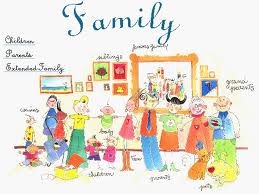
Unfortunately, Rosh Hashanah and Yom Kippur are also a time for getting together with relatives, making them
ripe for spawning a whole mess of brand-new conflicts.
Heightening this risk is that there may be varying levels of religious
observance within extended families, ranging from less-is-more lax to “let’s see how much holier than thou we
can possibly be.” Neither did it help this year that Yom Kippur coincided with Columbus Day Weekend, a holiday given
to unseasonably balmy weather (in the Northeast at least), because it falls during what is often called Indian Summer (as
politically incorrect as that may be).
Still, I was a little surprised when my brother invited us to break the fast at his house this year, then
specified that the house he had in mind was his weekend home on Fire Island, an exclusive, narrow spit of land off the south
shore of Long Island. Never mind getting into conflicts with others; I was already conflicted inside myself.
On the one hand, I found this invitation
hard to resist, having set my foot in sand only once this summer, when he’d invited us out for Father’s Day Weekend
in mid-June. On the other,
I may be a mere Reform Jew, ranking toward the very bottom of the observant pyramid as far as Judaism goes, but I still take
the High Holy Days seriously. It felt more than a little cheesy to even consider spending Yom Kippur on the beach.
In my book, however, it’s
more important to be a devoted mother, daughter, sister and wife than a devout anything. That is to say, promoting family
relationships and preserving harmony in the household far outrank nearly any religious consideration. I guess I subscribe
to the popular Jewish philosophy of shalom bayit – doing whatever is necessary to keep “peace in the
house.” So I accepted his invitation, but proposed that we arrive there late in the day so that we could attend services
at our synagogue first.
My brother balked at this suggestion, in part because he wanted to spend as much of the day as possible enjoying
the island together. He also wanted to spend as much time as possible with his daughter, Suzy, a student at Brown University
in Providence. It turned out he wanted us to pick her up en route at the train station in New Haven. He preferred that we
skip services, leave that morning and rendezvous with her at noon.
But in the course of settling all of these minor
details, another conflict arose that threatened to blow all of those issues, let alone our entire relationship, out of the
water.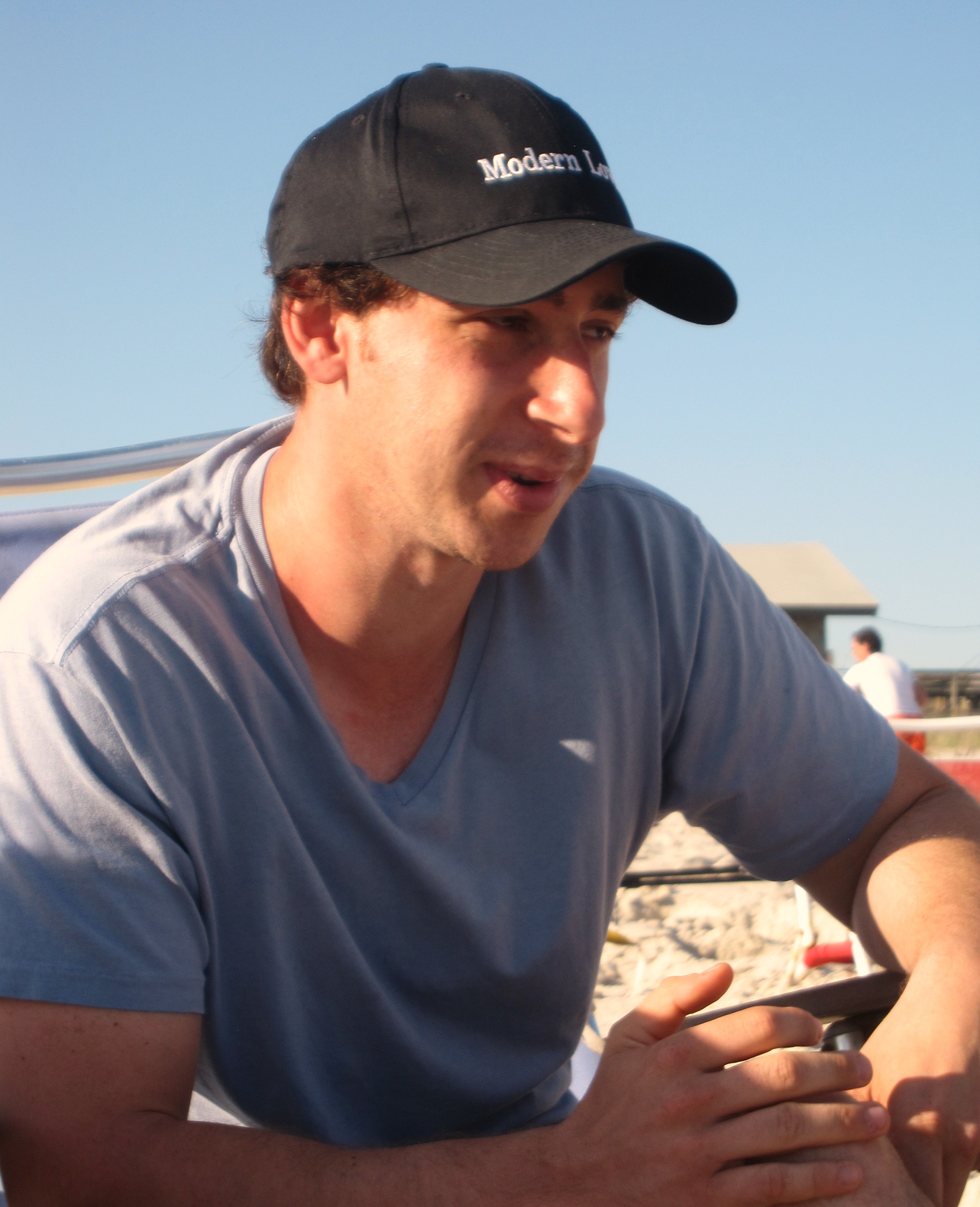
As I reported last week, I’ve been worried lately about the extent to which my son has been overdoing
it, working so hard while attending grad school that he’s stressed out, overtired and very testy… sometimes to
the point of being mean to his own mother.
One reason he was working so diligently, I suspect, was that he
insisted on paying his hefty school tuition himself.
My husband and I had continued to insist that this financial obligation
was both our responsibility and something that we would feel truly honored and privileged to assume. As most Jewish parents,
we regard education as an almost unparalleled priority in life. It also remains our firm belief that it is our parental duty
to foot the bill for our children’s higher education, given that we have the good fortune to be able to afford it.
So while discussing the holiday visit, I raised an unrelated issue with my brother. His own son Charlie,
who, like Aidan, is 25, is currently applying to law schools. I told my brother that I’d just had a disturbing interaction
with Aidan and how distressed I was about it and the extent to which he was over-committing himself. Then I asked him who
would be paying when Charlie returned to school. My thought was that if Aidan knew his cousin was going to school on his parents’
dime, he might be more inclined to relent.
My brother replied that of course he was going to offer to pay,
but that he fully expected my nephew to similarly refuse. Then, rather than dropping it there, he went on to give me an earful
of his own beliefs about parental responsibilities, or lack thereof.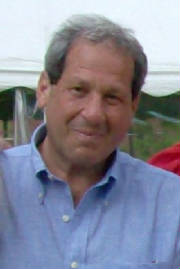
“First of all,” he proceeded to state, “for any parent to be doling out advice to a 25-year-old
child, or for that child to possibly be asking for it, shows that there’s something seriously wrong. You’re way
too involved in your children’s lives and always have been. You really need to learn to mind your own business and just
stay out of theirs.”
OK, as both a sister and the parent of two, I know perfectly well how routine it is
for people to have very different personalities and world views from their siblings. I also know that many people will rarely
miss an opportunity to let their brothers and sisters know the many ways in which they are defective, deficient, or otherwise
dead wrong.
In my brother’s case, along with leaning heavily toward the “less is more” school of religion,
he is adamantly convinced that parents should cut their grown children a wide berth and let them fend for themselves under
most circumstances. He regarded me as wildly overprotective, was appalled by my predilection to be privy to the minutiae of
my children’s lives, and had long been extremely liberal in letting me know that he felt this.
As I’ve noted, this was far
from news to me. And under normal circumstances – whether it’s because I’m the younger sibling, a woman,
or inclined to hold my tongue -- I would have kept how offended I felt to myself. But all this occurred the morning after
my calamitous encounter with my son. I had barely slept the night before and remained very distraught. So rather than letting
his words roll off me, I confronted him right back.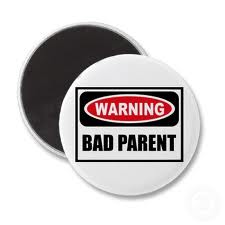
“Let me ask you something,” I began. “When was the last time I criticized your parenting
skills?” Before he could reply, I forged ahead. “Wait, let me revise that. Have I ever criticized your
parenting skills? Or would I ever criticize your parenting skills?”
Undaunted, being both a successful
attorney and someone given to certitude, he began to argue in his own defense that I was the one who had asked him for advice.
The fact was, I hadn’t really asked for advice. I merely had wanted one small piece of information and had unfortunately
revealed much too much information in the process.
But instead of pointing that out, I simply retorted that I would
be sure to never ask for his advice again. And before he could say another word, I slammed down the phone.
So much for keeping the peace.
I spent the next few days wondering whether we should now go to his house at all. I assumed that he spent them wondering
as well -- wondering if we were still coming.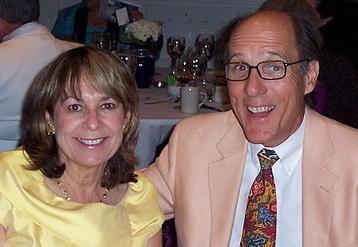
The fact is that we’d also been invited to break the fast at the home of our good friends Pat and Michael,
and it would have been much easier to stay close to home and do that. However, we were planning to join our children at my
brother’s house, and one of the many reasons I’d accepted was that it would be easier for them to join us there
than for them to take a bus home from New York City, in Jewish holiday traffic no less.
In part, I began thinking that
it might be better to pass on the holiday get-together this time and give everyone’s feelings a chance to dissipate.
But the holidays, as I’ve noted, are about resolving conflicts. Besides, sometimes small conflicts don’t get resolved.
Allowed to fester long enough, they evolve into full-blown family feuds.
I don’t know about your family, but nearly every one I know has some feud that began over a relatively
minor spat and went on to divide the family for generations. On my father’s side, there was the longtime rift between
my Aunt Lily and Uncle Abe on one side and their niece, my Aunt Marion, on the other. I don’t even recall what it was
about, but these people had once been so close that they chose to buy houses side by side. After they later stopped speaking
to each other, though (probably due to loutish and alcoholic Uncle Abe having stumbled drunk into Marion’s house too
many times), we always had to sneak into their respective homes for a visit without letting the other see.
Then on my husband’s side, there was the feud between his mother Harriet and her sister Belle, over
Harriet refusing to invite Belle’s boyfriend to her wedding in 1942. According to Harriet, Belle was dating a married
man, which she deemed inexcusable despite the fact that this man’s wife had been confined to a mental institution for
years. Belle never forgave her for this slight, which led to enormous divisiveness in the family. When she later ended up
living in the same apartment building as Cousin Muriel, another relative who had sided with Harriet, she continued well into
her 90s to loudly stage-whisper obscenities whenever they happened to meet in the elevator.
I was pretty steamed about my brother’s
lecturing me about my parenting skills. Face it, if there’s one thing no one wants to hear, it’s that they’re
a bad mother or father. But I didn’t want our sudden dispute to escalate further, to force everyone in the family to
choose sides, and to end up audibly muttering expletives in an elevator someday.
So it was a bit of a relief when
my brother took the lead and chose to email me a few days later. “I am truly sorry that my
answer to your question caused you additional hurt, especially at holiday time,” he wrote. “I wish the conversation
had not occurred.” He also hoped that my family was still joining his for the weekend, he continued. What’s more,
now, presumably in the spirit of conciliation, he was prepared to revise the plans.
“My
thinking is that in your heart of hearts Fire Island does not really work for you,” he wrote. So if we were coming,
he proposed gathering in his main residence instead.
To be perfectly honest, I didn’t exactly wish
that the conversation had not occurred. I wished, rather, that I could tell him about any problem I was having and that, instead
of criticizing me, he might say something reassuring or at least be sympathetic. But in the spirit of the holiday, I wanted
to put the episode behind us. So I soon wrote back in kind.
“I'm also sorry about the conversation and the turn that it took,” I responded. “And sure, we'll still
come.” In my heart of hearts, though, I admitted that I actually had been looking forward to going to Fire Island, as
unorthodox as that might be for Yom Kippur. But whatever we chose to do, I still wanted to attend temple services that morning.
Within a minute of my hitting “send,” the phone rang. It generally takes me a long time to recover from
quarrels, but he was elated at my response and ready to move on. Perhaps to show that, he suggested an option that would please
everyone. I could go to temple and arrive at his house late in the afternoon. We’d break the fast there. Then we would
sleep over, get up on Sunday morning and go to Fire Island for the afternoon.
We had a deal.
In the interests of shalom bayit,
though – and having just experienced how abruptly a simple conversation can turn south – I was determined to have
the entire visit occur without further incident. And for seven relatives with diverse temperaments to spend more than 24 hours
together (much of them while fasting), that might be a challenge.
My brother Joel, after all, is different from me in far more respects than religion and parenting. He’s obsessively
punctual; I think “on time” means less than 10 minutes late. He’s what I call a compulsive neatnik; I’m
laid back (or what he’d probably call a slob).
As for food, he likes his meals, like everything else, to run precisely
on schedule and to include exactly the right amount – no more, no less. He loathes having any extraneous items, a preference
that I tend to undermine, being a typical Jewish mother, meaning that I drastically overestimate human capacity and, unless
there are copious leftovers, worry relentlessly that someone went hungry because I didn’t make enough.
Since my brother was hosting, he said
I could bring one thing and one thing only. (This may sound harsh but was a major improvement over his usual dictum that I
not bring a thing.) He readily accepted my proposal to contribute a hot cheese blintz soufflé.
Don’t imagine that this meant
I had little to do to prepare for the visit, however. We live far enough apart that whenever our families get together, we
are always catching up on birthdays that have occurred in the interim. My brother, in fact, had celebrated his in mid-September.
And although he frowns upon having any major hoopla made over this, my niece had turned 21 earlier that month. That one was
a biggie, as birthdays go, and certainly not the kind of occasion I could possibly ignore. I needed to buy presents for both
of them, making sure to find just the right thing for her and not too much for him.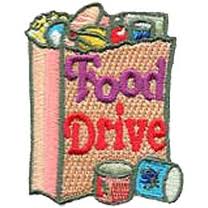
I was so preoccupied with this effort – not to mention getting our pre-fast dinner on the table on Erev
Yom Kippur in time for us to get decent seats at Kol Nidré services – that I neglected to do something
extremely important. I woke up on Yom Kippur morning and realized that somehow, for the first time since joining our synagogue
over 15 years ago, I had neglected to buy food for the poor to bring for the Yom Kippur food drive. I still managed to find
enough canned goods from our pantry to fill two shopping bags. But normally I buy a vast arsenal of fresh supplies. It just
didn’t seem like enough.
I may have managed to settle the dispute with my brother before it blossomed into a full war,
but I was nonetheless starting the New Year off with a heavy conscience.
After services, we changed quickly and jumped into
the car in time to reach New Haven well before my niece’s train. (I didn’t want her reporting that we had arrived
late.) For the remaining two-hour drive in Jewish holiday traffic, we managed to keep the conversation relatively light. (I
didn’t want my niece reporting any oddities afterwards.)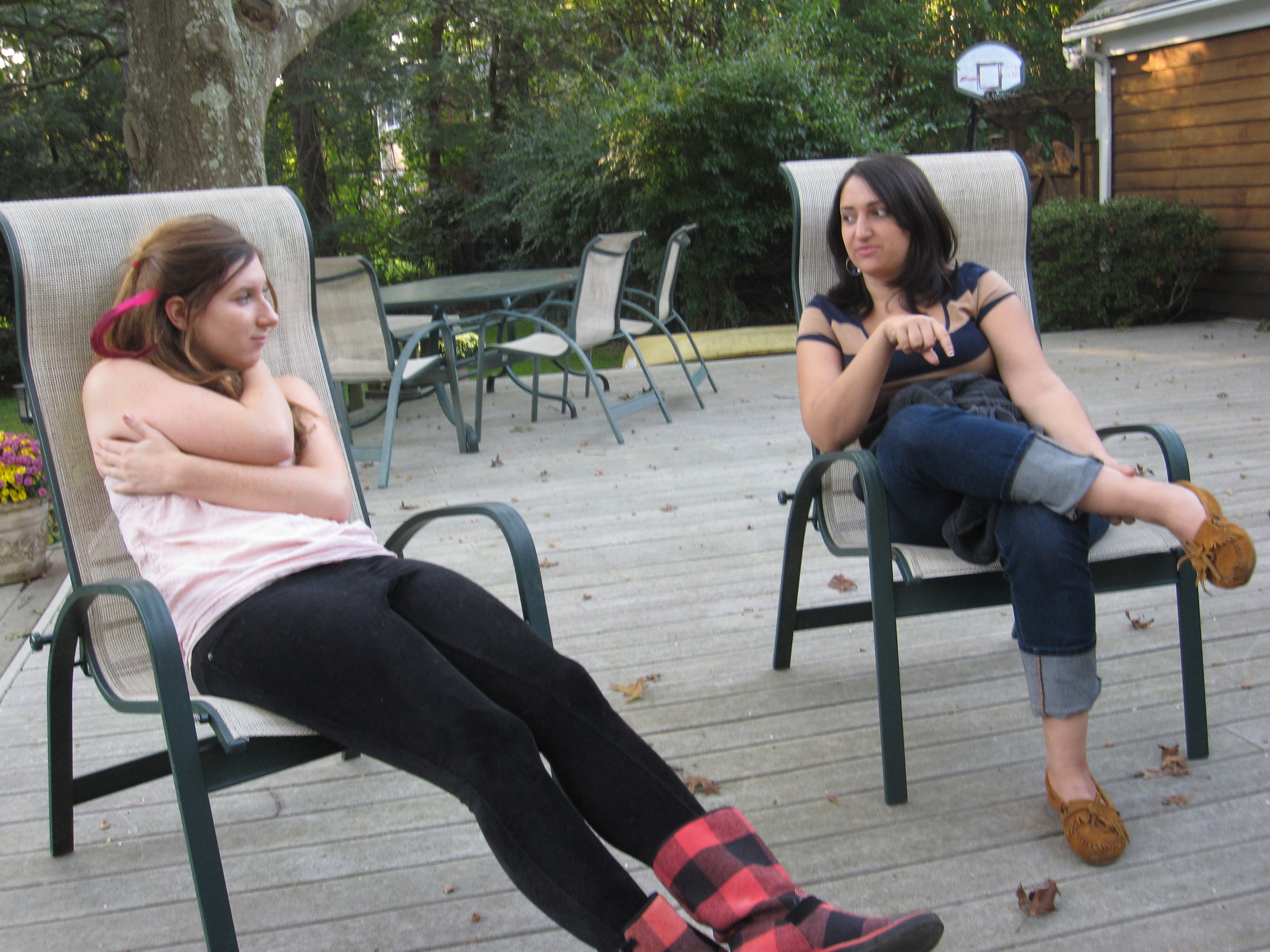
Upon arrival, my brother greeted me with a warm hug. And although he appeared briefly irritated when I proved to have
brought a second item (a bottle of sparkling water, of which he evidently already had an ample supply), he seemed genuinely
happy to see me. My children had beaten us there and were already seated in the back yard, but I spent a long time in the
kitchen assembling my blintz soufflé, hesitant to join the fray.
Normally, my brother is a stickler about waiting
to break the fast until sundown. (Yes, despite his rejection of many Jewish rituals, he steadfastly keeps Yom Kippur.) But
in a rare show of flexibility, he abruptly bowed to consensus and let us sit down at 6.
The conversation at the dinner table remained relatively innocuous. The most personal thing we discussed was something
that Allegra related about her new job teaching human rights at a high school in Harlem. As she reported, many students were
proving less than receptive to the material. And during her last lesson, which had focused in part on the Holocaust, she had
volunteered the fact that she was Jewish, whereupon one youngster had responded in horror with a loud, drawn-out, “Ohhhhhh!”
Then another had explained that there was widespread anti-Semitism in the school, as well as a whole lot of “Jew”
teachers whom the kids didn’t particularly like.
But before we could work ourselves up into too much of a dither in our collective indignation over this, I pulled my
bubbling blintz soufflé from the oven, and everyone seemed to unwind in gastronomic bliss.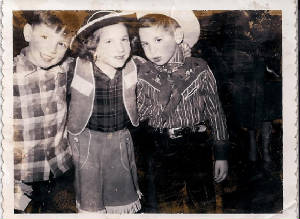
Then, after a quick cleanup effort, it was time to open gifts. Having managed to circumvent my brother’s usual
party-pooper mentality with my birthday offerings last year, I’d tried to follow the same formula, giving him a few
pairs of novelty socks from my favorite online source, The Joy of Socks; a hefty jar of Nutella (one of his secret vices);
and an old photo of himself with classmates in a kindergarten play, which I’d found among my late mother’s possessions,
then blown up and framed (although this one seemed to stir up memories of childhood and our not-so-happy history).
I fared much better with an assortment of clothing items I’d found for my niece – not that it’s necessarily
easy to gauge either the size or taste of the average 21-year-old. Then again, having covered fashion for many years in my
early days as a journalist, I have a secret knack for figuring out what not only will fit people but look good on them. (My
daughter thinks if I ever retire from my duties as NiceJewishMom.com, I could be a personal shopper, although I'd venture
that I already kind of am a personal shopper – for her.)
Then, before there could be a dull moment – or far worse, a discordant one – I whipped out a DVD I’d
brought along, a Woody Allen movie called You Will Meet a Tall Dark Stranger that, strangely enough, no one there
other than my daughter had seen.
There was a brief moment of turmoil when we couldn’t seem to get the DVD player to work. Even Aidan was stymied,
despite being so technologically adept that we often refer to him as Computer Aid. My limited skills pale drastically by comparison,
but were far outweighed by my motivation. I took matters into my own hand, along with the TV remote, and tried everything
possible until miraculously the opening scene began to roll.
This 2010 comedy starring Naomi Watts and Josh Brolin,
although no Annie Hall, proved amusing enough, and by the time the closing credits had rolled, it was time for bed.
We took the ferry out the next morning, and by noon we were back in Paradise. There are no cars on Fire Island. No hustle,
no bustle. Just beach cottages, sun, the sound of the surf, and people and dogs lolling on the beach as far as the eye can
see.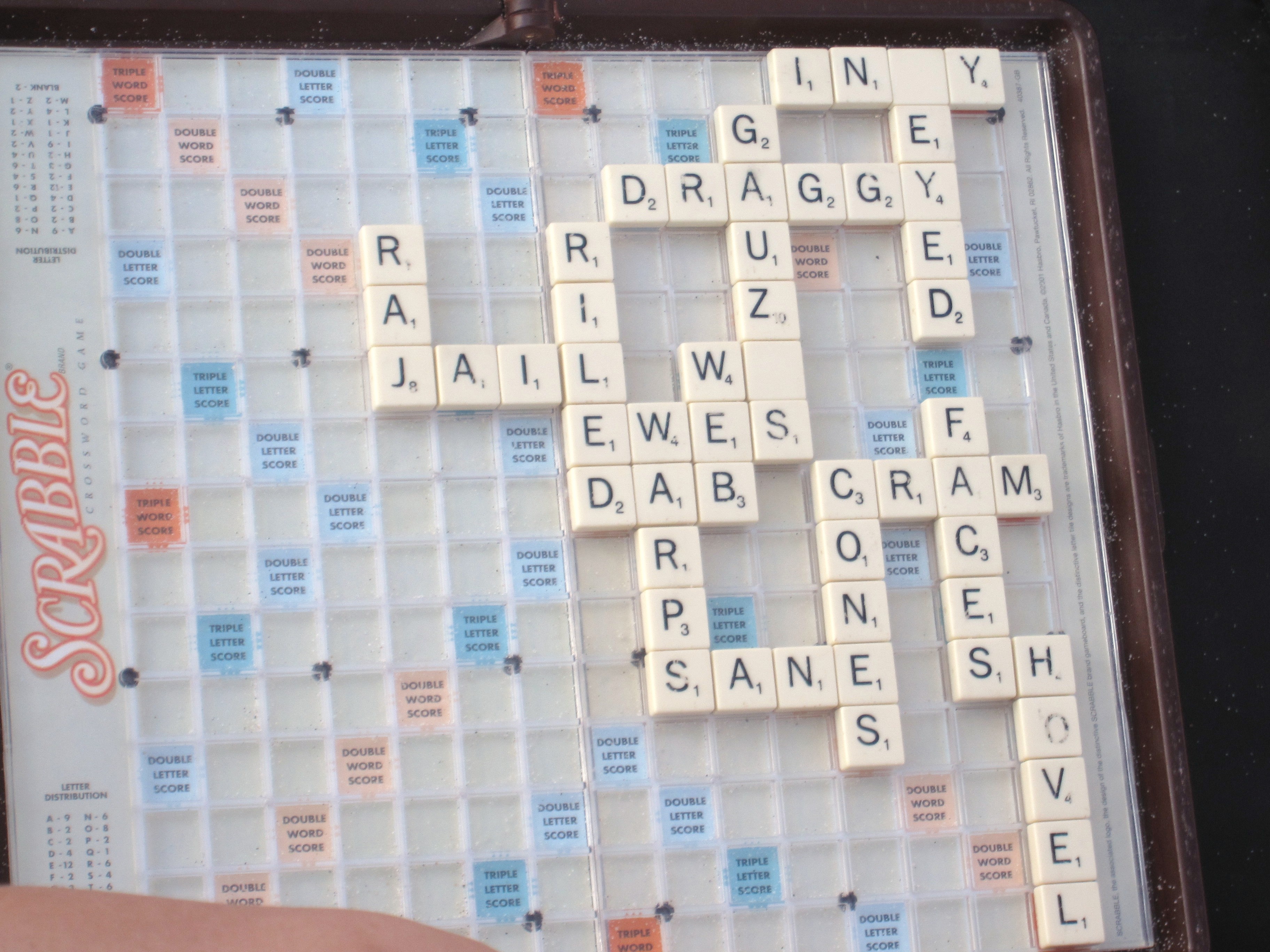
My kids told me later that I seemed preoccupied there. In fact, I was trying to enjoy myself and, despite a nagging
sense that the summer was now definitively over, I did. But if I seemed distant or detached it was because I was deliberately
keeping to myself. I even resisted joining my daughter, niece and sister-in-law in a lively game of Scrabble. Although rarely
if ever at a loss for words, I was too busy circumspectly minding my P’s and Q’s to handle any other letters.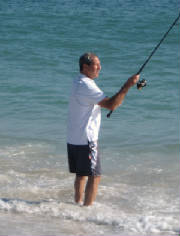
All of this vigilance was probably unnecessary because my brother, an avid fisherman, spent much of the afternoon off
on his own at the shoreline, surf-casting. Besides, by now he seemed past any trace of discord himself and essentially at
ease.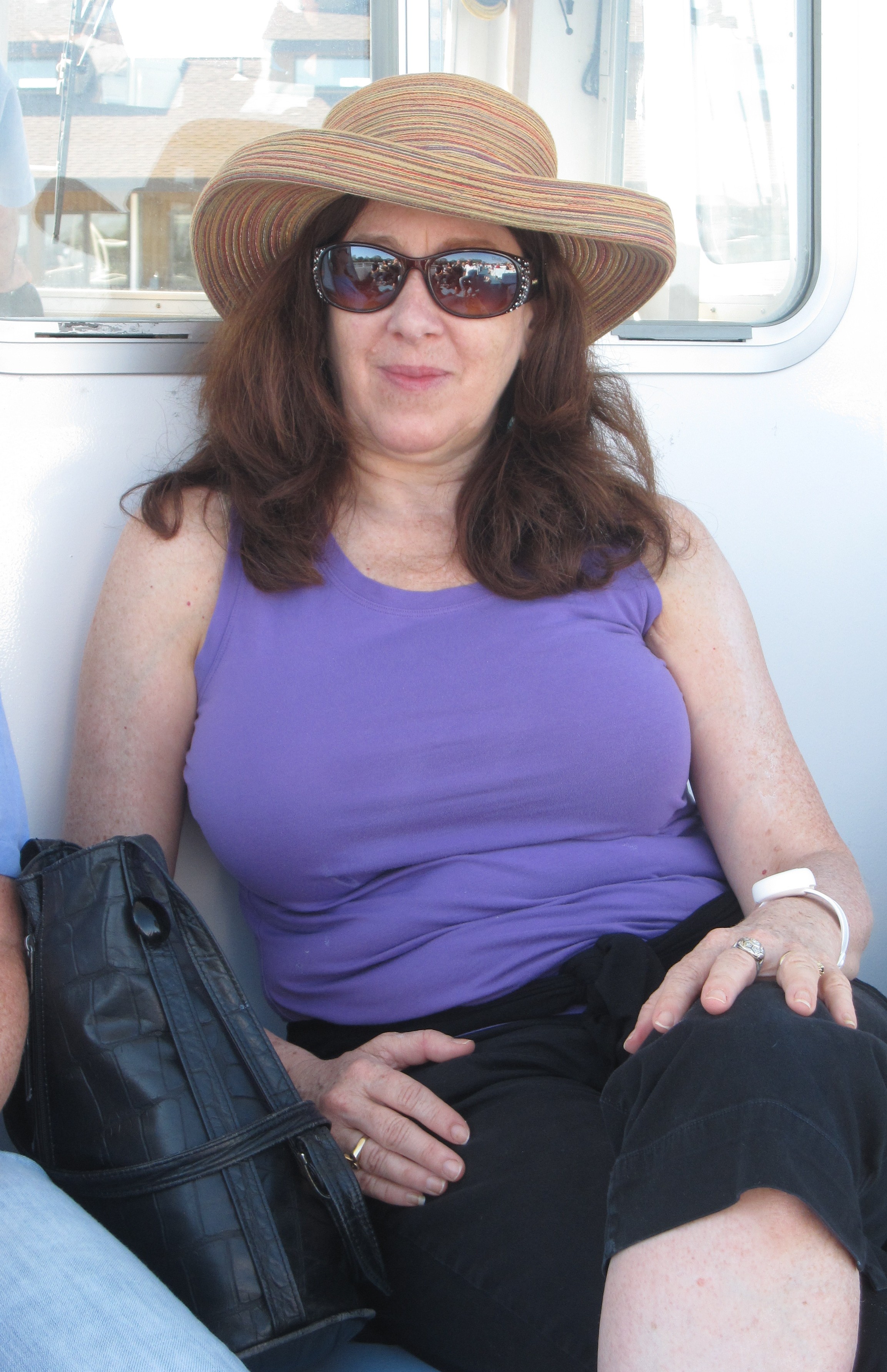
Even so, it was with some relief that I boarded the ferry with my family early that evening. My brother and sister-in-law
had invited us to stay another night with them. But my children felt obliged to take a nearby train to NYC to attend
a close friend’s birthday party. We also needed to get my niece back to New Haven in time for her to catch the 9:08
back to school.
With the unpredictability of the traffic, we didn’t have a minute to spare. My brother had made
me promise that we wouldn’t even stop for a snack. So it was disconcerting when within minutes of driving away from
the ferry, we found ourselves hopelessly lost.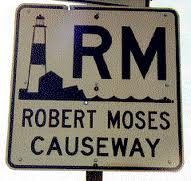
“We’re supposed to get onto the Robert Moses Causeway by taking exit 41,” my husband, who was reading
the directions aloud while I drove, instructed me.
“What? We’re already at Exit 40,” I exclaimed, “and
the numbers are going down!”
Perhaps the directions I’d downloaded from Mapquest were flawed, as often happens. Or
maybe, with the blinding glare of the setting autumn sun, we’d missed the sign. But after driving around in circles
for nearly 20 minutes, I acquiesced to my niece’s pleas to let her retrieve her cell phone from the trunk so she could
consult her GPS. Yet somehow that only resulted in our getting even further off-track. We soon wound up driving across a long,
narrow bridge that I feared was leading us back to Fire Island.
It turned out to be a conduit to a remote area called Robert Moses State Park.
“Oh, no!” cried Suzy. “Whatever
you do, don’t tell my dad about this. I’m the one who lives on Long Island and should know my way around. He’ll
think that I’m an idiot.”
And for the first time, I realized that my secret was unquestionably safe with her.
With luck, we were also finally pointed
in the right direction. All we had to do was not miss that Amtrak train, for which she’d already bought a pricey nonrefundable
ticket, and he need never know.
Unfortunately, we were now mired in the middle of Long Island in what was a bad combination
of Jewish holiday, American holiday, and usual end-of-the-weekend traffic. In other words, we were stuck in both gridlock
and Yidlock.
Once we had crossed the Throgs Neck Bridge, though, it was fairly smooth sailing, and I must admit
that I pushed the envelope on the speed limit making up for much lost time. So somehow, we managed to reach New Haven by 8:40,
with nearly 30 minutes to spare.
The question was, now what? The plan was that we should simply drop my niece in front of the
station. And if I were my brother, that’s what we surely would have done.
But I wasn’t my brother. I was NiceJewishMom.com. I was also, for now, my brother’s daughter’s keeper.
And past experience with trains and stations had taught me to proceed with caution, particularly at night. How many times
my daughter had arrived at a train or bus station only to discover a cancellation or delay. Then there was the time 25 years
ago that I was mugged in Hartford’s Union station by a convicted felon who claimed to have a knife.
“Uncle Harlan is hungry,”
I told my niece. “We’re coming in to get a sandwich and to get you something to eat, too.” And we parked
across the street and followed her inside.
She protested that her dad had given her money, but I insisted on buying her dinner to go at Sbarro, her fast-food venue
of choice. Mostly to keep her company, I also ordered a slice of pizza while my husband went to Dunkin’ Donuts for that
sandwich. Then we settled on a long wooden bench in the waiting room to await her train and eat.
That’s when it happened. Within
a minute of our sitting down, a middle-aged woman dressed in ragged clothing entered the building and, for some reason, made
a beeline for us. Then she plopped herself down beside my niece and, eyeing our meals with keen interest, began interrogating
poor Suzy relentlessly, punctuating every single question or answer with a hysterical cackle that made her appear slightly
deranged.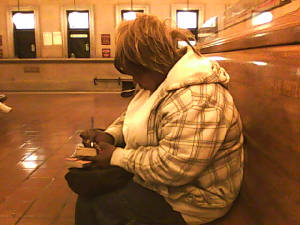
Where was Suzy going? What college did she attend? What was she studying? What was each of us eating?
This last topic was unmistakably of
paramount interest to her. A morbidly obese black woman in a stained sweatshirt, shapeless jeans and hoodie and a strange
blond wig, she scrutinized each of our food items covetously, asking where we’d procured them and what they might have
cost. Meanwhile, as if singing a song with a sad refrain, she repeatedly informed us, apropos of nothing, that the soda she
was sipping from a tall plastic cup had set her back a whole $2. I finally asked if she had eaten as well.
No, she replied wistfully, licking her
lips. She didn’t have enough money.
Having fasted the day before, I had a fresh sense of what it felt like
to be hungry, albeit for only a day. Still smarting from the guilt I’d felt the previous morning, having neglected to
do that Yom Kippur shopping, I was gripped by three conflicting impulses.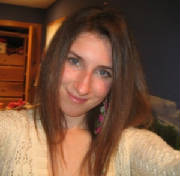
My heart went out to this poor creature, and I was tempted to offer her money to get herself something to eat. So, obviously,
was Suzy, who plaintively whispered to me, “Shouldn’t we buy her a sandwich?” But as I explained, whispering
discreetly back, I knew I had only $20 bills in my wallet and wasn’t prepared to fork over one of those.
I also felt a little exasperated, being
now unable to enjoy my last private moments with my niece, nor to relish a single bite of my pizza, which, even smothered
in veggies, was a rare and welcome departure from my normally sensible, low-calorie diet.
Worst of all, I could tell that this
loud, seemingly unstable and presumably homeless woman was making my niece extremely uncomfortable. Suzy is a brilliant girl
and a stellar student, but also very sweet and rather shy. Had I not been there with her, I had little doubt that this intrusive
woman would have asked her for a handout directly, and that she would have felt extremely awkward and not known what to do.
Even I didn’t know what to do. So I did, essentially, nothing. We sat there for 15 more minutes this way, until
the train, which was running late, finally arrived. Then we hugged Suzy goodbye, urging her, as I do with my own kids, to
text me when she got in.
Still feeling guilty, I followed my husband outside and began to walk toward the car. Halfway
down the block, though, he suddenly stopped. “I really want a donut,” he said.
Normally, I would have retorted, “You
don’t need a donut,” or noted that we still had a good hour’s drive ahead of us, I was beat, and
it was past 9 p.m. and getting late. Instead, I pivoted instantly and readily accompanied him back into the station.
Instead of trailing him into Dunkin’
Donuts, though, as he clearly expected, I veered off and headed straight for that poor woman, who had relocated to another
bench.
This time I didn’t hesitate for a second. “Do you want a sandwich?” I asked.
I’d actually worried about offending
her. Turned out I didn’t need to worry about that at all... or to ask twice.
“Oh, yeah! Oh, YEAH!” she
exclaimed, bounding to her feet with surprising energy.
She declined to follow me into Dunkin’ Donuts, though, opting for a “$5 Foot-long” from the Subway
next door instead. The negotiation that ensued was a bit of a comical exchange because my husband, who had since joined us,
kept urging her to choose something reasonably healthy, while she insisted on ordering what might have been the least dietetic
option on the menu, a pepperoni and salami hero smothered in extra mayo.
“How about adding some vegetables to that?”
I prompted, whereupon she deigned to submit to a sprinkling of diced peppers, but adamantly refused tomatoes or anything else
remotely crunchy or green. “I don’t like lettuce!” she exclaimed.
Then she managed to change the subject
more deftly than many a professional diplomat. “Your wife’s very pretty,” she told my husband. “So
is your daughter,” she added, turning to me.
I thanked her, explaining that Suzy was actually our niece. She
in turn told us that she lived in a nearby homeless shelter, where she had resided for quite some time. She insisted on giving
me her name and address in case we were ever in the area again. We left her sitting on yet another bench, devouring her booty with
delight.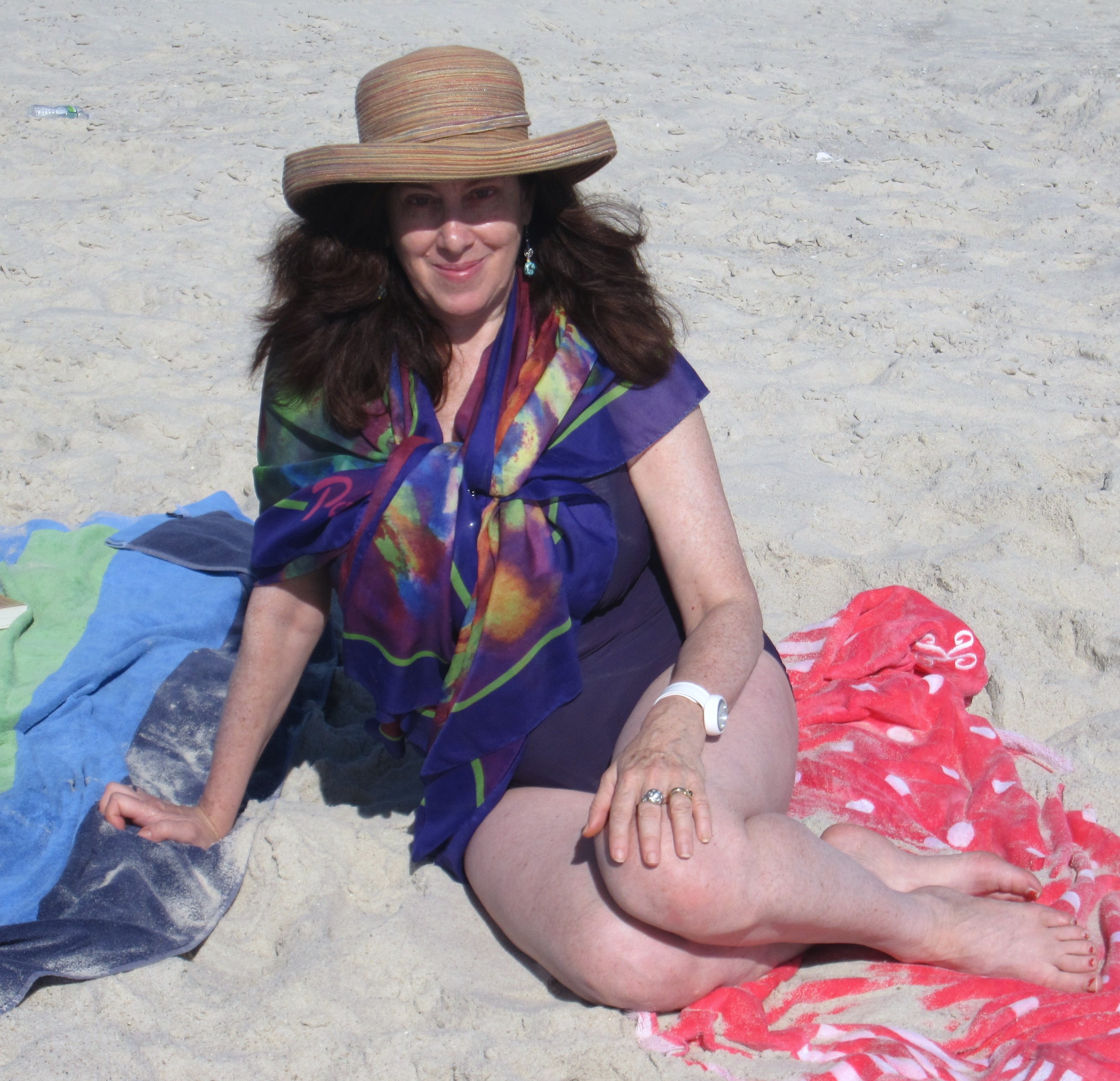
It did take us a good hour to get home, but I was no longer feeling beat. I later texted all the details of this denouement
to my niece, including the fact that this woman had said she was pretty. “What a sweet story,” she finally responded
just past midnight. “Thanks and yes, I’m back.”
What would my brother think of all that? I don’t
need to ask – I know. Maybe I am overprotective. I do get too involved in my children’s lives
and maybe I coddle them too much. But I am what I am, I’m happy being who I am, and I’m probably not about
to change now.
Sure, my niece could have managed in that station on her own. And yes, kids need to learn to fend
for themselves. But I think our being there saved her from an unpleasant ending to what was, in the end, indeed a harmonious
family weekend without any calamity or incident, however reticent I may have felt.
I’m also very glad that my brother
and I managed to mend our rift promptly and move forward. At least for the foreseeable future, no obscenities in elevators
for me.
11:58 pm
Wednesday, October 5, 2011
A Word From the Weiss
 With the Jewish New Year upon us, I’ve been thinking a whole lot lately, not just about life’s little dilemmas
-- like whether it would be better to serve brisket or chicken to my holiday guests -- but big ones, like
how I could lead a better, more satisfying life. With the Jewish New Year upon us, I’ve been thinking a whole lot lately, not just about life’s little dilemmas
-- like whether it would be better to serve brisket or chicken to my holiday guests -- but big ones, like
how I could lead a better, more satisfying life.
A good life, after all, isn’t only about being good.
It’s also about feeling that way. And although one certainly shouldn’t be predicated upon the other, let’s
face it – when you’re feeling blessed, you may be a little more inclined to share the wealth with others.
So I was more than a little interested
when one of my favorite TV shows, CBS’s Sunday Morning, led off two weekends ago with a segment on the subject
of pleasure.
“It can be as simple as a sunset, as decadent as a dessert, or as extravagant as a weekend in Paris,”
it began. “But we all have our little pleasures.”
It went on to quote Gregory Berns, an Emory
University neuroeconomist (whatever that might be), who noted that in surveys he had conducted, participants’ chief
sources of pleasure focused on the three basic human needs – sleep, food and sex (yes, in roughly that order).
I was not at all surprised when he specified that these participants consisted entirely of college undergraduates,
because I knew that they couldn’t be grown women. For one thing, once you become a mother, sleep becomes more of a daily
struggle than a source of delight. For another, he neglected to include any of the three top pleasures that mature women know
in life: shopping (for anything other than what you can find in a supermarket); having a great new piece of gossip to share (however sincerely during the High Holy Days you may swear off the sin of spreading it); and discovering that you were
right in some way, and your spouse, mother or similar significant other was wrong. share (however sincerely during the High Holy Days you may swear off the sin of spreading it); and discovering that you were
right in some way, and your spouse, mother or similar significant other was wrong.
Of course, being a mother,
I know of an even higher level of potential satisfaction, which involves giving some sort of pleasure to others. (This may
relate to food, but it has nothing to do with sleep or sex, because by “others” I mostly mean my children.)
So in the interests of pursuing more happiness, I instantly lit up recently when I received an email saying
“See Hugh Jackman, back on Broadway for 10 weeks only!” But then I thought, “I love Hugh
Jackman, but my kids prefer jazz.” So when I received another email announcing opening night of Jazz at Lincoln Center,
I bought four tickets to that instead. Then I wrote to both my children. “Any takers?” I asked.
My son was unavailable, but my
daughter Allegra and her boyfriend Stevo were eager to join us. As I have reported, Stevo, a talented musician and aspiring
audio engineer, recently landed a fabulous job at a recording studio in L.A., and he was leaving last Wednesday. Allegra,
who has been seeing him for about two years, was dreading his departure, but making the most of his continued presence in
NYC and eager for a special night out.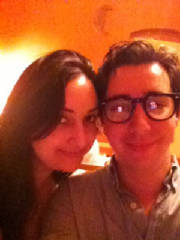
You might wonder why they’d want to share even a second of their limited time left together with us.
The fact is, they knew we’d take them somewhere nice. Besides, they had already enjoyed their own special night out
together only a few days earlier, when they had gone to see Relatively Speaking, a new production featuring one-act
plays by Ethan Coen, Elaine May, and Woody Allen, which had just begun previews on Broadway.
They raved about these plays so ardently afterwards that I figured, as long as my husband and I would be
in the city that weekend, we should see them too. But we clearly were not the only Woody Allen fans in the greater New York
area, so they were virtually sold out. All I could find were two separate seats in the very back. And although I was willing
to sit separately from my husband, what I really wanted were three seats.
I wanted three seats because I
felt a little guilty taking Allegra out for a special evening and excluding my son Aidan. Moreover, Aidan is an aspiring
screenwriter and playwright, not to mention a lifelong, dyed-in-the-wool Woody Allen devotee. So if any one of us should have
been getting to see a new play he’d written, it was probably him.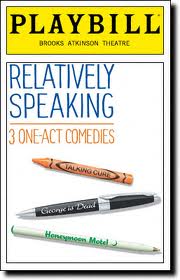
I continued checking the theater’s Web site for days, as well as looking on Craig’s List. No
luck. Then, late on Thursday afternoon, four seats together suddenly appeared. Never mind that they were in the very last
row. They were in the orchestra, they were for that Sunday’s matinee, and they were even eligible for a promo code I
had from Theatermania.
Elated, I tried to phone Aidan, who was at work and didn’t answer. So I texted
him. Same result. I knew he had to work on Saturday too. But that meant he’d probably need a break on Sunday, and he
might appreciate having something nice to look forward to.
I was so afraid to risk losing those seats that I phoned Ticketmaster
right away. “How many tickets do you need?” inquired the young woman who answered. She was so understanding (unlike
many an irascible reservationist I’ve dealt with) that she was willing to hold while I tried to reach Aidan one more
time. But I had no luck yet again. Should I leave him out, knowing that the tickets were so pricey that there was no way he’d
ever see the play later, on his own? Or should I risk it and take a leap of faith?
We’re all familiar with leaps
of faith. Life is so risky that we take countless leaps every day. We take them whenever we leave the house. We take them
when we pray.
But should I play it safe now, or take such a leap on a theater ticket that would cost me $79 ($86.75 actually,
including fees), and pray that my son would be able to use it?
If worse came to worst, I could offer it to a friend, or sell
it on Craig’s List myself.
“I’ll take three,” I said. Then I sent yet another text to my son
relaying the news.
It was several hours before he responded. “I don’t think I can make it,” he wrote, explaining
that he had to meet with someone on Sunday. My heart plummeted. But then he thought better of it and offered to rearrange
his schedule. “I’ll work it out,” he said.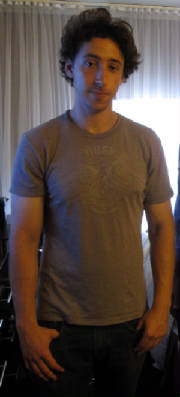
My close friend Liz readily offered to take his seat if he still proved unavailable. But he continued to
insist that he’d make it somehow and refused to discuss it further.
Aidan, you see, is one of those
people who take on way too much responsibility and then look for more to do. Along with attending grad school on Tuesdays,
he was working long hours five other days of the week, including Saturdays, performing free-lance crew jobs on TV shows like
“Gossip Girl,” “The Good Wife,” and “CSI New York.” He also was writing articles about
music regularly for The Village Voice and Jazz Times, working as a teacher’s assistant at his college,
and playing a weekly gig at a jazz club.
On top of all that, he’d evidently agreed to use his nearly
non-existent spare time to produce two short films for friends, and he’d scheduled meetings for these on Sunday.
He sounded more like a madman than someone eager to attend a nice matinee. He was so busy, he told me, that he hadn’t
had time to do his laundry lately and now he would never get to it. He’d also have no time to join us for a meal
before or afterwards. We’d simply meet at the theater and chat a bit during intermission.
To my distress, I realized that
his joining us would end up being less of a pleasure for him than just an added pressure. I felt like the mother of a beleaguered
beast of burden, and sensed that I had just purchased that proverbial straw destined to break the camel’s back.
“Liz would love the ticket,” I repeated, regretfully. But he remained determined to come.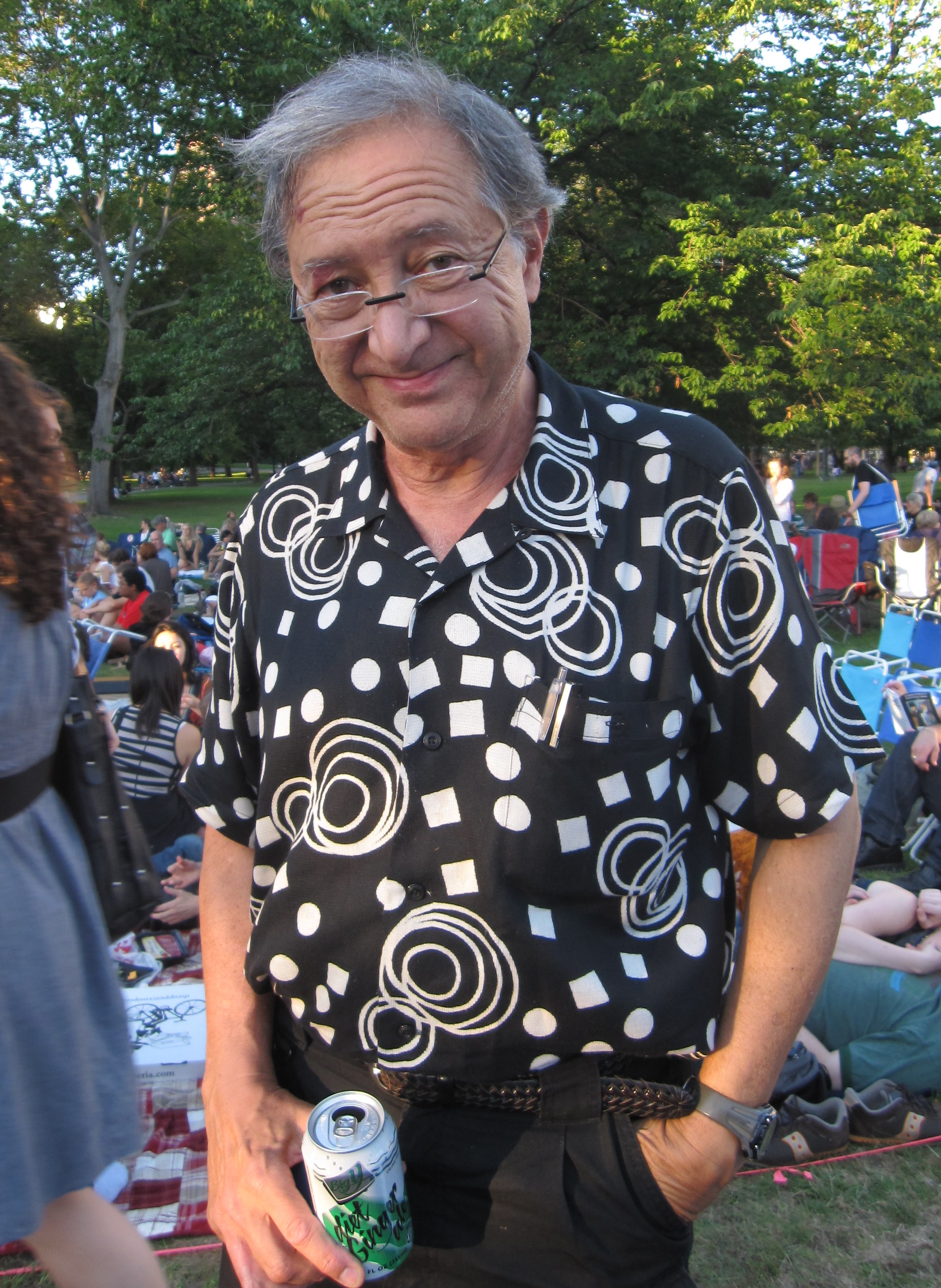
At least my husband seemed delighted about the multitude of events I’d planned. He’s also a Woody
Allen fan and seemed especially overjoyed when we arrived at our hotel.
Pleasure takes many forms, and we all have our
personal sources of satisfaction, from horror movies and hot peppers (deemed a form of “benign masochism” by another
professor on that CBS show) to chocolate (arguably also classifiable as a human need).
Then there are the people who are obsessed with celebrities and their personal lives (although, according
to yet another expert on that show, people would pay less for a sweater that had once belonged to George Clooney if they were
told that they could never resell it or brag about it, and even less if they were told that it had been washed thoroughly,
since, as the expert’s wife put it, “you’ve washed away the Clooney cooties”).
Cooties or not, my husband would much prefer to have a sweater once owned by Olivia Wilde (at left) or Kyra
Sedgwick. But over the summer, he had discovered a very different source of pleasure that had nothing to do with
sleep, sex or celebrities. He had developed a passion for Pinkberry.
This is an exquisitely tart-tasting variety of frozen yogurt, sold at special outlets across the country
in assorted flavors, from “original” to pomegranate, and heaped with your choice of toppings, ranging from fresh
fruit and shredded coconut to bits of candy. The chain has yet to open in our town, so whenever we travel he looks for it.
When we arrived at the hotel, we discovered that there was a Pinkberry located directly across the street.
We didn’t want to spoil our
dinner out at Bar Boulud, the restaurant I’d reserved near Lincoln Center, though. So we resolved to go there for
dessert later that night.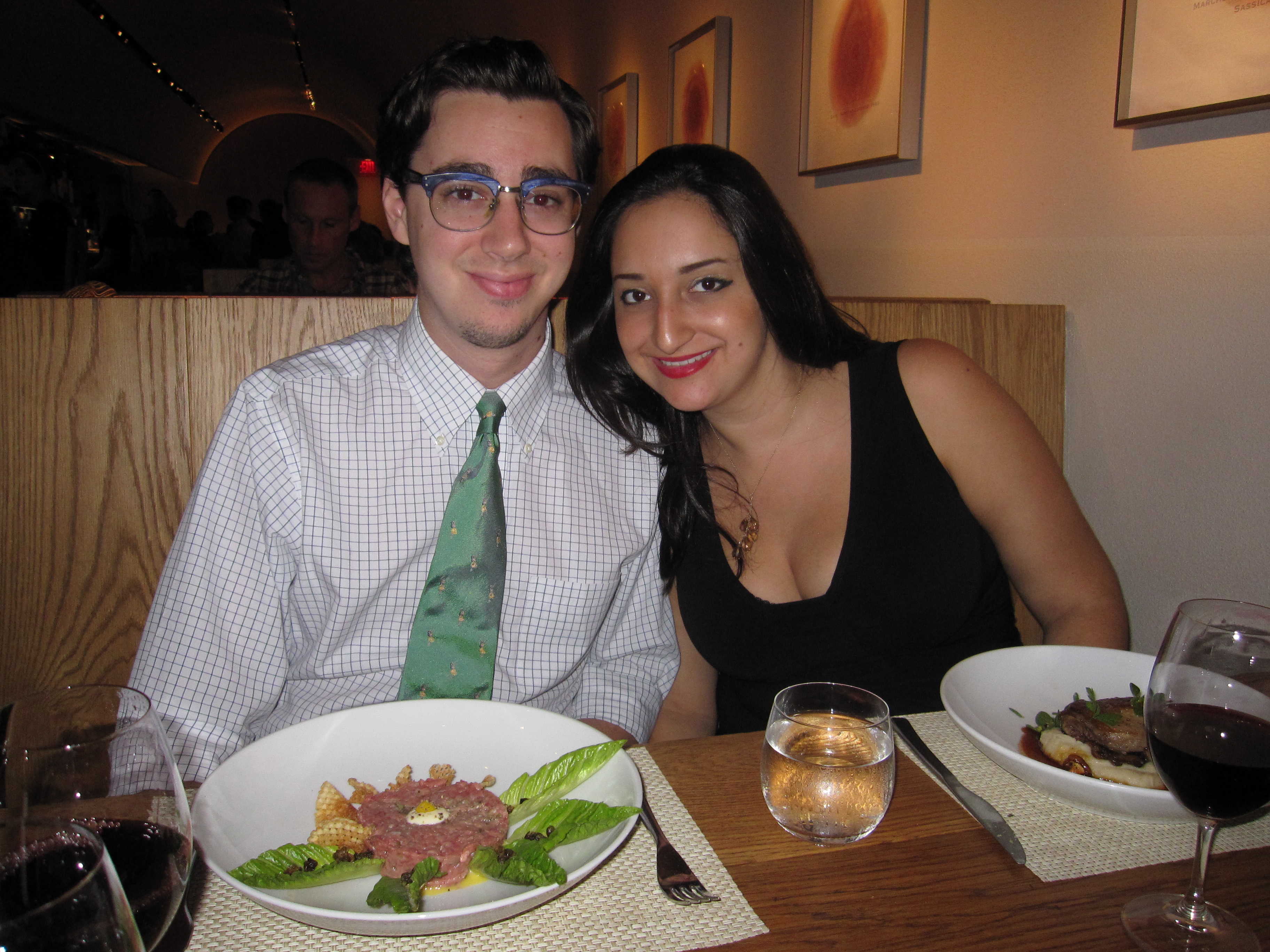
When we arrived at dinner, we discovered that Allegra and Stevo were bristling with excitement about our
evening out. They’d been looking forward to it all week, she said, and both had dressed up accordingly. Although the
restaurant proved to be a bit pricier than I had anticipated, our last dinner with Stevo was a major occasion, however bittersweet,
and we went all out, sharing a bottle of wine, along with escargots and pâté.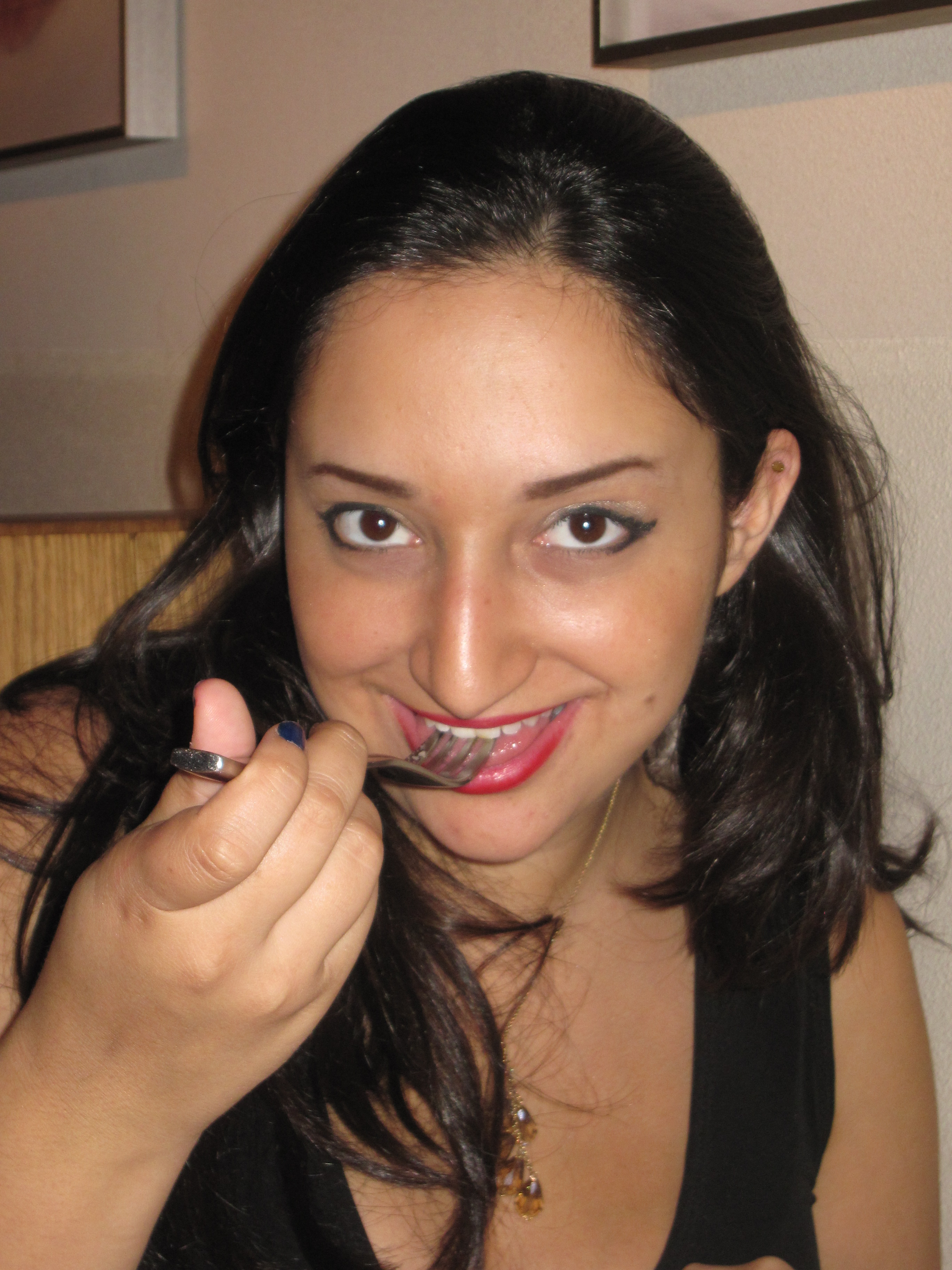
Unfortunately, the entrées proved to be so modest in size (despite the exorbitant prices) that we
decided to also spring for three of the gorgeous, decadent desserts that had been passing us by, including one called
Tanin (an intense dark chocolate  tart with cocoa mousse and vanilla ice cream), a Royal Coupe Glacée (lemon verbena-white chocolate Chantilly
with red currant compote and chartreuse peaches en gelée) and a caramel and chocolate-covered apricot
tart with apricot-hazelnut ice cream. tart with cocoa mousse and vanilla ice cream), a Royal Coupe Glacée (lemon verbena-white chocolate Chantilly
with red currant compote and chartreuse peaches en gelée) and a caramel and chocolate-covered apricot
tart with apricot-hazelnut ice cream.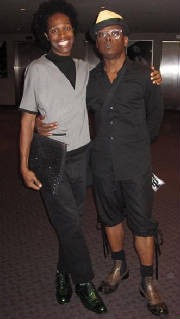
Then we made our way to the concert, held in Jazz at Lincoln Center’s Rose Theater, where the air was
charged with anticipation. There’s something invigorating, I must say, about opening-night performances, as well as
events featuring a multicultural crowd, rather than the ho-hum, homogeneous gatherings we tend to frequent back home in Connecticut.
For one thing, many of the people present were decked out in edgy and somewhat unconventional attire, from
the bright red shirt and matching beret sported by one gentleman to a fellow in black knickers and his sartorially splendid
male companion, who happily posed for me during intermission.
Then there are the issues of coolness and
comportment. When we go to a concert, we might be motivated to tap our toes energetically, or even keep the beat discreetly
with our fingertips on our knees. But the stylish woman sitting next to me, sporting a mane of heavily beaded cornrows, saw
fit to cry out after every single solo, erupting with a loud, “Sing it, brother!” or simply, “Yeah!”
It reminded me of what happened when our temple used to have an annual exchange with an African Methodist
Episcopal church in honor of Martin Luther King Jr.’s birthday. Members of the church kept up a loud running commentary
throughout services, constantly reacting to the minister’s utterances with ardent cries of “Uh-huh!” “Amen!”
and “Praise Jesus!” And when they came to visit, they brought their vociferous worship habits with them. How stodgy
we felt by comparison, sitting in inhibited silence. After all, the only time we dare show the slightest enthusiasm during temple services is when we dare to break into applause
during the High Holy Days to acknowledge a shofar blower’s particularly heroic efforts. After all, the only time we dare show the slightest enthusiasm during temple services is when we dare to break into applause
during the High Holy Days to acknowledge a shofar blower’s particularly heroic efforts.
The thing that moved me most, however,
was something that took place on the stage itself. Jazz at Lincoln Center aims not only to generate a wider audience for jazz
music, but also to preserve its endangered traditions. With that in mind, the headliners that night consisted of two esteemed
elder statesmen of the jazz world, saxophonist Jimmy Heath, who turns 85 this month, and singer and lyricist Jon Hendricks,
a co-founder of the group Lambert, Hendricks & Ross, who was introduced as “the James Joyce of jive!”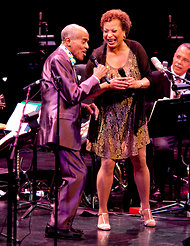
“There’s a rumor goin’ around that I’m 90,” noted Hendricks, who sported a
shiny suit in a shade of vibrant aubergine and an even brighter, multicolored checked shirt. “Must be someone
with a vivid imagination.” In his mind, he was still 11. (I know just what he meant, except that I've mentally
made it to around 19, give or take.)
Joining him were stellar recording artist Dianne Reeves, the closest
thing to Ella Fitzgerald alive today, the incomparably inventive Bobby McFerrin, and rising jazz star Sachal Vasandani, “a
young man who’s relatively new on the scene – which ain’t me!” Hendricks howled. But he was also accompanied
by his abundantly talented daughters Aria and Michele, two of his seven offspring. (“We have children like other people
have mice,” Hendricks quipped. “We have children to rent!”)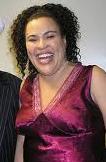
And at the close of the first act, after an electrifying grand finale, Aria ran to the front of the stage,
turned her back to the audience and dropped to the floor, kowtowing to her father in devoted reverence. What parent isn’t
secretly dying to experience something like that?
It was an image that would
soon come back to haunt me.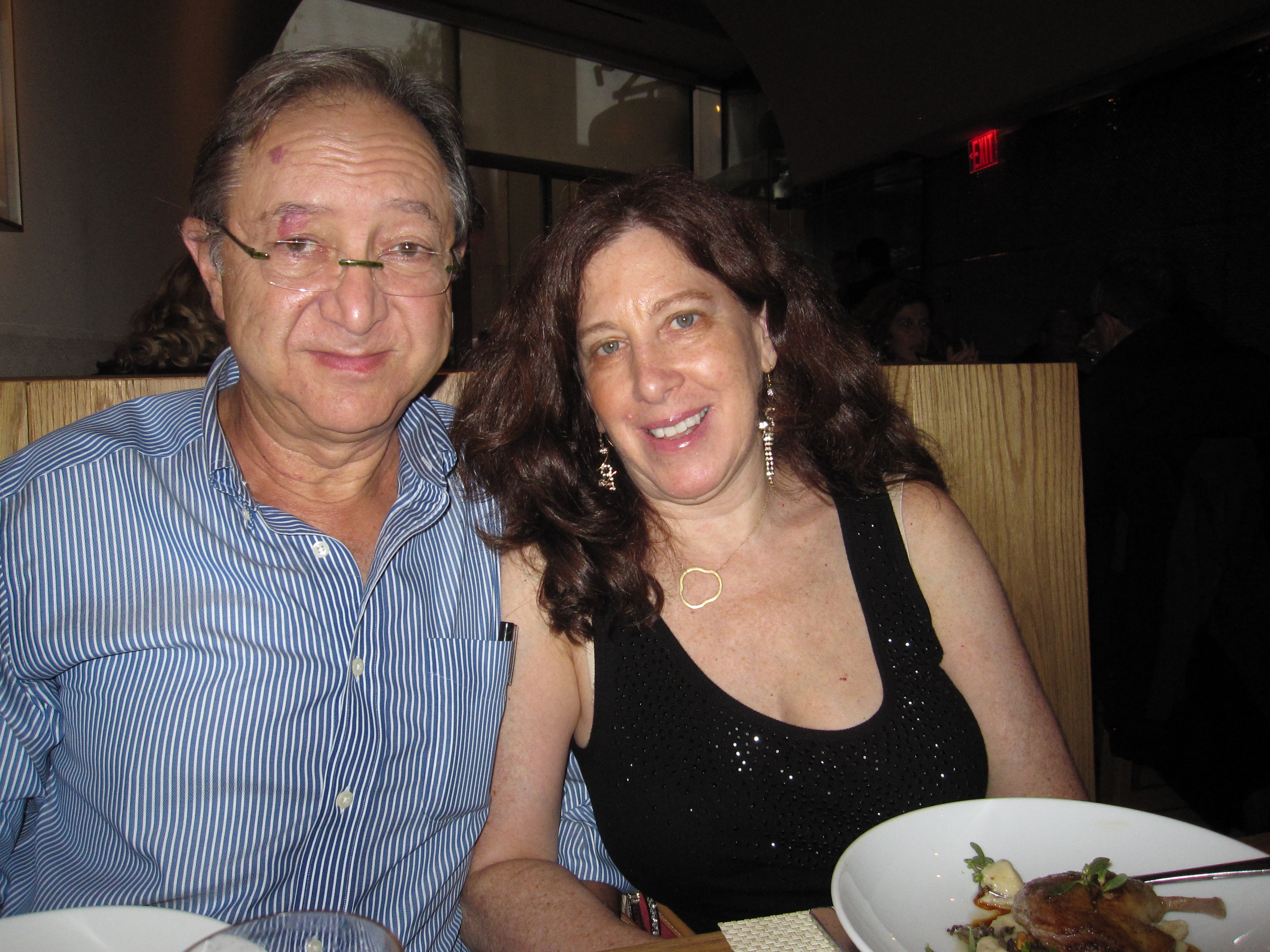
Granted, I did feel pretty good about myself and the entire evening as I put Allegra and Stevo into a cab
after the performance and slipped her a twenty to cover the ride. But when my cell phone rang 10 minutes later, at 11:20 p.m.
and I saw her number on the caller ID, I had an inkling that my luck was about to change.
It was too soon for them to be
already phoning to announce their safe arrival home. Indeed, they were still en route. Allegra was calling to report that
she had just received a call from her ex-boyfriend, the son of close friends of ours, whom she had dated through much of middle
school and high school. He had gotten engaged that very afternoon to another girl from her high school class and had wanted
to tell her about it directly, rather than having her hear the news through the grapevine or, even worse, find it on Facebook.
Of course she was happy for him. And we were thrilled for his folks. But coinciding with Stevo’s imminent departure,
the timing was, let’s just say, less than ideal. And if you don’t understand why it was painful for her to hear,
then let’s just say it’s a girl thing.
So we were in no mood for Pinkberry by the time we reached our hotel. We also realized that we had a choice
of eating a second dessert, which we surely didn’t need, or getting upstairs in time for the season premiere of Saturday
Night Live, hosted by the ever-hilarious Alec Baldwin. And we elected to go with the live entertainment over the
live yogurt cultures.
The next day turned out to be unseasonably warm, so we decided to ditch our plans to
visit a museum and meet Allegra and Stevo at a street fair instead. En route, walking through midtown’s wholesale district,
my husband stopped into a schlocky shop to buy a T-shirt. While he disappeared upstairs with the owner, I noticed
that the place stocked men’s underwear and socks so cheap that, as they say, they were practically giving it away. Hadn’t
Aidan complained that he would have no time to do his laundry? Perhaps I could make up for having diverted him from this task by buying him some staples. So I picked up a three-pack of
boxer shorts and a 12-pack of socks, all for a mere 10 bucks. Surely he’d appreciate this when he woke up to clean
undergarments instead of having to wear dirty ones in the morning. Perhaps I could make up for having diverted him from this task by buying him some staples. So I picked up a three-pack of
boxer shorts and a 12-pack of socks, all for a mere 10 bucks. Surely he’d appreciate this when he woke up to clean
undergarments instead of having to wear dirty ones in the morning.
After our outing, the kids walked us back to
our hotel to collect our luggage before we went to the play. That’s when we realized it was our last chance for that
Pinkberry. All four of us ordered cups brimming with our flavors and toppings of choice, which were so delicious that I remarked
to the salesgirl that I wished I could bring some home with us. She volunteered that they had free ice packs for this purpose.
That’s when I got an idea.
Aidan was so busy with his meetings that he might not have had time for lunch. Why not bring him a cup? If
he didn’t want it, it wasn’t that pricey (a mere few bucks versus the $86.75 I’d already risked on the ticket).
He could always just throw it away.
The play started at 3, and we’d left 40 minutes to drive about 18
blocks -- less than a mile -- to get there. What we hadn’t bargained on was a street fair near Times Square that had
closed countless blocks to traffic. With sheer gridlock in effect, it took us nearly 20 minutes to drive only halfway. Even
with the ice pack, the frozen yogurt was beginning to turn into yogurt soup. We had also received a call from Aidan en route.
We'd agreed to meet at the theater at 2:45, but by 2:30 he was already there.
Since I had the tickets, I decided
to jump out and run the rest of the way, in high heels, no less, while my husband remained stuck in traffic. I
arrived at around 2:50, out of breath and dripping with sweat, to see my son standing out front looking mightily peeved.
“Where were you?” he demanded.
I explained as best I could, while panting and foraging in my purse
for the tickets. I told him about meeting his sister, stopping for Pinkberry and getting stuck in gridlock.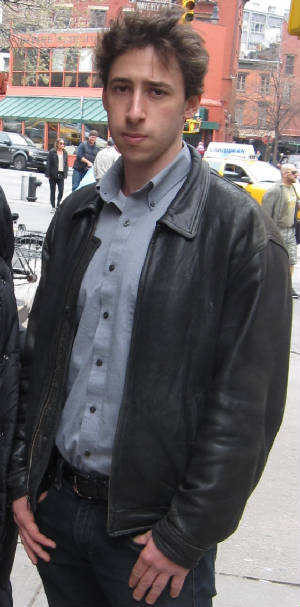
He shook his head, looking even more irate, and asked me to repeat it all again. “So, let me get
this straight,” he finally said. “You were nearly late for a Broadway show in order to catch the opening segment
of Saturday Night Live?”
“What?” I protested. “No, of course not! It wasn’t
like that at all. I mean… That is… Well, I guess you could say that’s what happened, if you counted back
all the way.”
By now we were inside the darkened theater and I’d managed to catch my breath. “But look what
I brought you!” I added, opening the bag. “Half peanut butter, half original. I thought you might not have had
time for lunch."
I proffered the Styrofoam cup brimming with sliced mango, fresh raspberries and slivered toasted almonds surrounding a two-tone
mound of semi-frozen dairy product. Somehow, he did not look pleased.
“I just ate,” he replied flatly.
“I’m full.”
“Oh. Woops. Sorry!” I said, smiling apologetically as I realized that I’d
screwed up yet again. So much for my leaps of faith. “Don’t worry about it,” I said. “We can just
throw it away.”
“No,” he said sternly, seizing the cup. “I’ll just eat it.”
I assured him this wasn’t necessary, that I’d realized all along he might not want
it and didn’t mind tossing it out. But beyond being naturally industrious and responsible, Aidan is staunchly frugal.
He would never let something like that go to waste. So he gripped the plastic spoon and dug in.
I’d hoped at the very least
that the sheer cool pleasure of eating this sweet treat might stimulate his appetite. But before taking a single bite, he
proceeded to verbally bite my head off.
“You’ve known me my whole life,” he said. “Haven’t
you figured out by now that I don’t like surprises?” What he liked even less, he said, was having to feign gratitude
for nice things people did for him that he hadn’t wanted in the first place.
Personally, to be honest, I don't like surprises either. Even so, if someone brought me a cup of Pinkberry
at any time of day or night, no matter how recently I’d eaten, I’d have no need to feign gratitude. But at that
moment, any sense of magnanimousness I felt was melting faster than the glistening mound in his hand.
“Please, just eat a little
bit, then throw it out,” I persisted. But he kept plugging away until he had drained the whole cup. Then we found our
seats, and I tried to surreptitiously stuff the other bag I held under my seat. Yet soon we had to stand to let someone
in our row pass, and he heard the telltale crinkling of the plastic.
“What else have you got there?”
he asked suspiciously.
“Nothing,” I replied nervously. Dare I tell him? Or should I cut my losses and keep it to myself?
“I bought you some clean socks and underwear while Dad was in a store today,” I ventured meekly. “You
know… just to tide you over until you have time to do your laundry.”
Even though the lights had been
dimmed, signaling that the play was about to begin, I could make out what might have been the most withering glance I’d
ever seen.
“Mom?” he said coldly. “I’m 25. You have to stop. Seriously. I can buy my own underwear,”
he said.
“Sorry,” I replied, stuffing the bag further under my seat. “I realize that. I understand.
You’re so busy all the time these days, though. I was just trying to help.”
At
this, he let out a long sigh that
sounded like a kettle reaching the boiling point. "Mom?" he seethed. he seethed.
And somehow, in an instant, I stopped being the semi-hip, modern mother who blogs, Tweets and goes to
jazz concerts, and turned into a caricature of the proverbial nice Jewish mother, a yenta who never knows when
to stop. I hid my face in my hands.
“Why do you hate me?” I asked.
“Hate you?” he replied. “I don’t hate you. I just don’t live with you anymore.”
Those are the words that he said. But the ones I heard were subtly different. What I heard in my heart
was, “I just don’t need you anymore.”
At that moment, my husband burst in beside us,
ticket in hand, just in time to see the curtain going up and tears gushing down from my eyes.
“What’s going on?” he stage-whispered repeatedly. “What happened? What did I miss?”
 I’m happy to report that the plays – at least the third one, which Woody Allen wrote – were so uproariously
funny that we eventually found ourselves howling with laughter, despite the family drama that had just unfolded. I’m happy to report that the plays – at least the third one, which Woody Allen wrote – were so uproariously
funny that we eventually found ourselves howling with laughter, despite the family drama that had just unfolded.
I’m even happier to report
that Aidan called soon after that day to apologize profusely.
“I'm so sorry," he said sincerely.
"I’ve really been beating myself up about it. I was just stressed out, and you didn’t deserve it.”
I was quick to apologize, too. Although I’d meant well in each of my actions, as you can tell from this sorry
tale, he clearly felt that I was not respecting his boundaries. Or treating him like the adult that he is. And that is obviously
not a good thing.
Still, I admitted that I’d been extremely disappointed about the day and deeply hurt.
The fact is that I’d been
heartbroken about his behavior, but mostly because it wasn’t like him at all. I’m so proud of him. He’s
a great young man. He’s a great son. We rarely fight, and ordinarily he'd never do anything to deliberately hurt me.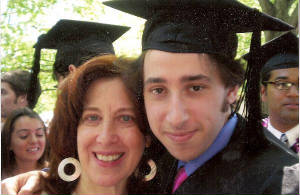
So for him to have reached the point where he lashed out at the one person on earth who loved him most, however
annoying and excessively helpful she might be – for, honestly, who will ever love us as much as our own mothers?
– meant that he was in serious pain, or at least definitely doing much too much.
He explained that when
I do these things that are meant to help him, he feels like I'm intimating that he can’t take care of himself (which
is clearly not what I intended to do and clearly not the case). He told me that he was feeling much better, though, and that
he had just been stretched to the breaking point and incredibly overtired that day.
I was relieved to hear this, although it was even more gratifying to hear something else.
“You’ve been the most
supportive mother,” he said. Which was not quite having him kowtow publically onstage (not that I’d actually
ever really want that), but was still music to my motherly ears.
Being
a nice Jewish mom, all I want is
for my children to be happy. That’s what would give me more pleasure than anything else there is. But as I
keep learning each week, just as money can’t buy happiness, mothers can’t buy it, either.
I'm not quite ready to give up, but I’m thinking of starting my own support group: Mothers Who Do Too
Much for Their Children and the Children Who Love Them Anyway (But Would Rather Buy Their Own Underwear).
Meanwhile, from now on I’ll
consult my kids before buying them tickets, ice cream, or almost anything else. Also, next time I'm going to cut my losses
and go for Hugh Jackman instead of jazz. Or maybe I'll just try to buy one of his old sweaters on eBay. I must confess
that I'd just about die to have almost anything of Hugh's in any hue. But please, please, whatever you do, don’t
wash the cooties off.
1:03 am
|
|
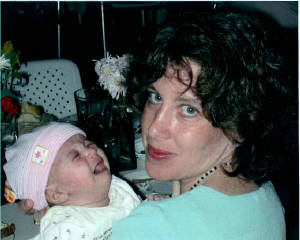
|
| That's me. The redhead on the right. But that is NOT my baby. |
No, sir, that's not
my baby. How could any mother smile beatifically while her own child wailed? Never mind that neither of my offspring
ever cried so plaintively, as far as I recall (not while I was there to nurture them through their every perceptible
need... although my son still complains that I often dressed him in garish and girlish color schemes, scarring him FOR LIFE). Besides, I'm distinctly beyond prime
delivery age ("Kitchen's closed!" as my mother might say), and my kids had departed the diaper stage by the
dawn of the Clinton Administration. Now in
their 20s, both are currently living on their
own, in not-too-distant cities, although each manages to phone me daily. In fact, to be exact, several times a
day, then sometimes text me, too. (That may sound excessive, and emotionally regressive, but I subscribe to
the Jewish mother's creed when it comes to conversing with kinder: Too much is never enough.)
Two demanding decades spent raising two kids who are kind, highly productive and multi-talented, who generally
wear clean underwear (as far as I can tell), and who by all visible signs don't detest me are my main credentials
for daring to dole out advice in the motherhood department.
Presenting myself as an authority on all matters Jewish may be trickier to justify. Yes, I was raised Jewish and am biologically an unadulterated, undisputable, purebred Yiddisheh
mama. I'm known for making a melt-in-your-mouth brisket, not to mention the world's airiest matzah
balls this side of Brooklyn. My longtime avocation is writing lyrics for Purim shpiels based on popular Broadway productions,
from "South Pers-cific" to "The Zion Queen." Then again, I'm no rabbi or Talmudic scholar. I
can't even sing "Hatikvah" or recite the Birkat Hamazon. Raised resoundingly Reform, I don't keep kosher, can
barely curse in Yiddish, and haven't set foot in Israel since I was a zaftig teen. Even so, as a longtime writer and ever-active
mother, I think I have something to say about being Jewish and a mom in these manic and maternally challenging
times. I hope something I say means something to you. Welcome to my nice Jewish world!
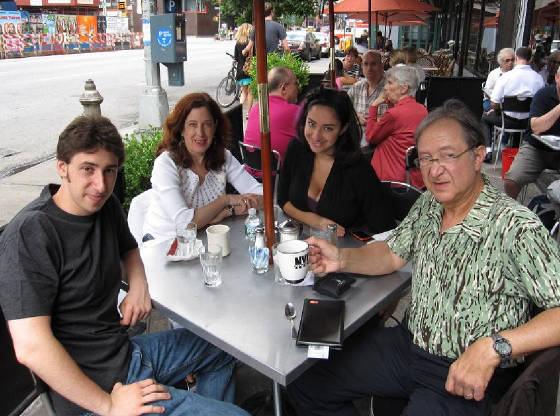
|
| LEVYS! MEET THE LEVYS! WE'RE A MODERN JEWISH FAMILY... |
In coming weeks, I will continue
posting more personal observations, rants, and even recipes (Jewish and otherwise). So keep reading, come back often,
and please tell all of your friends, Facebook buddies, and everyone else you know that NiceJewishMom.com is THE BOMB!
********************************************* The family that eats together (and maybe even Tweets together):
That's my son Aidan, me, my daughter Allegra, and Harlan, my husband for more than 26 years, all out for Sunday brunch on a nice summer weekend in New
York.

|